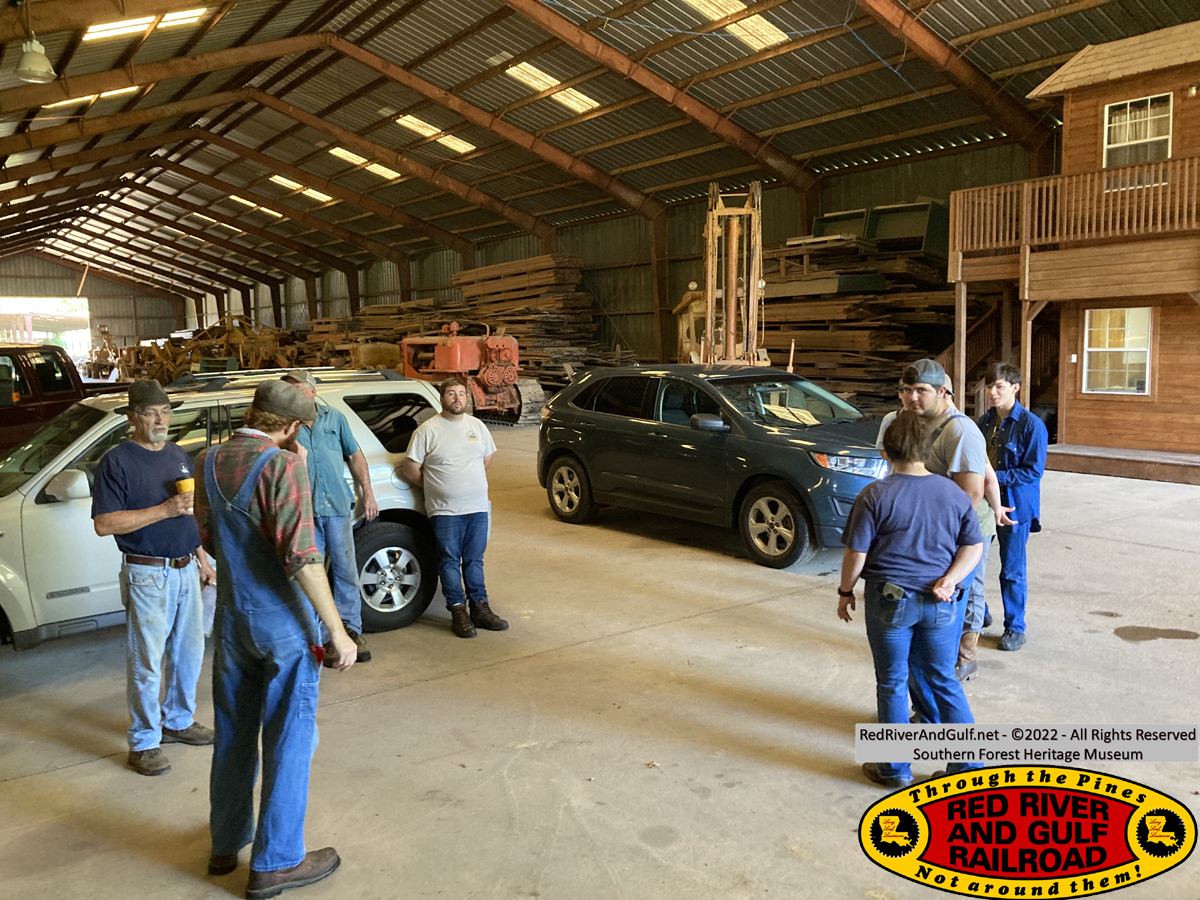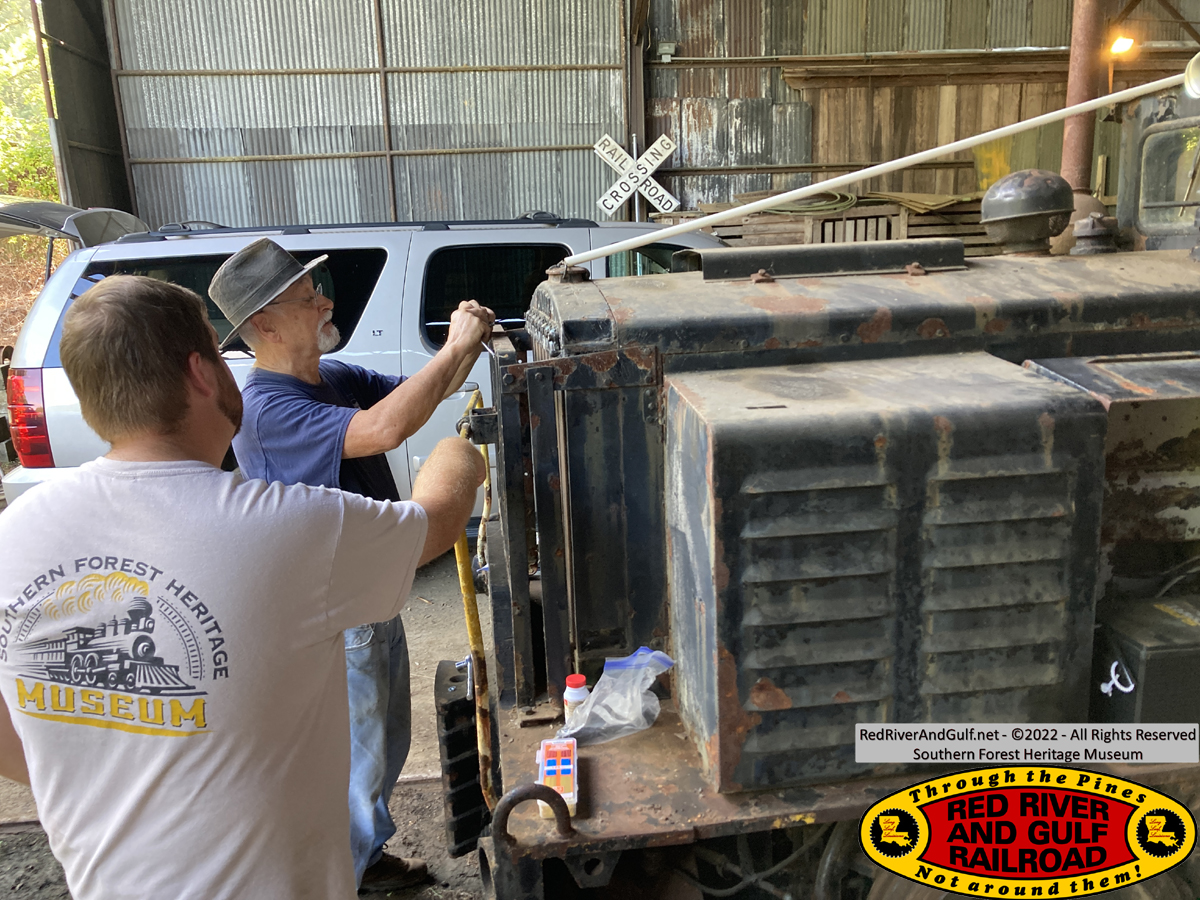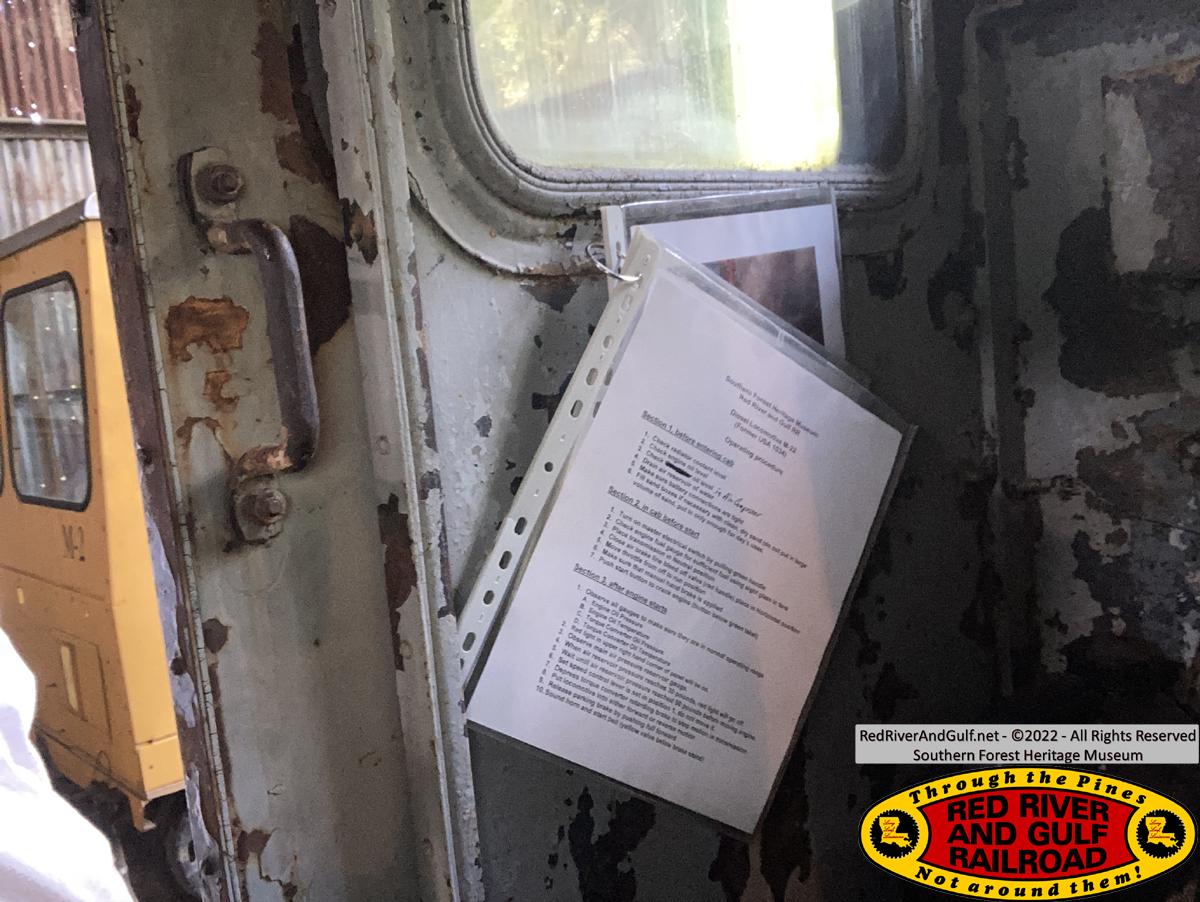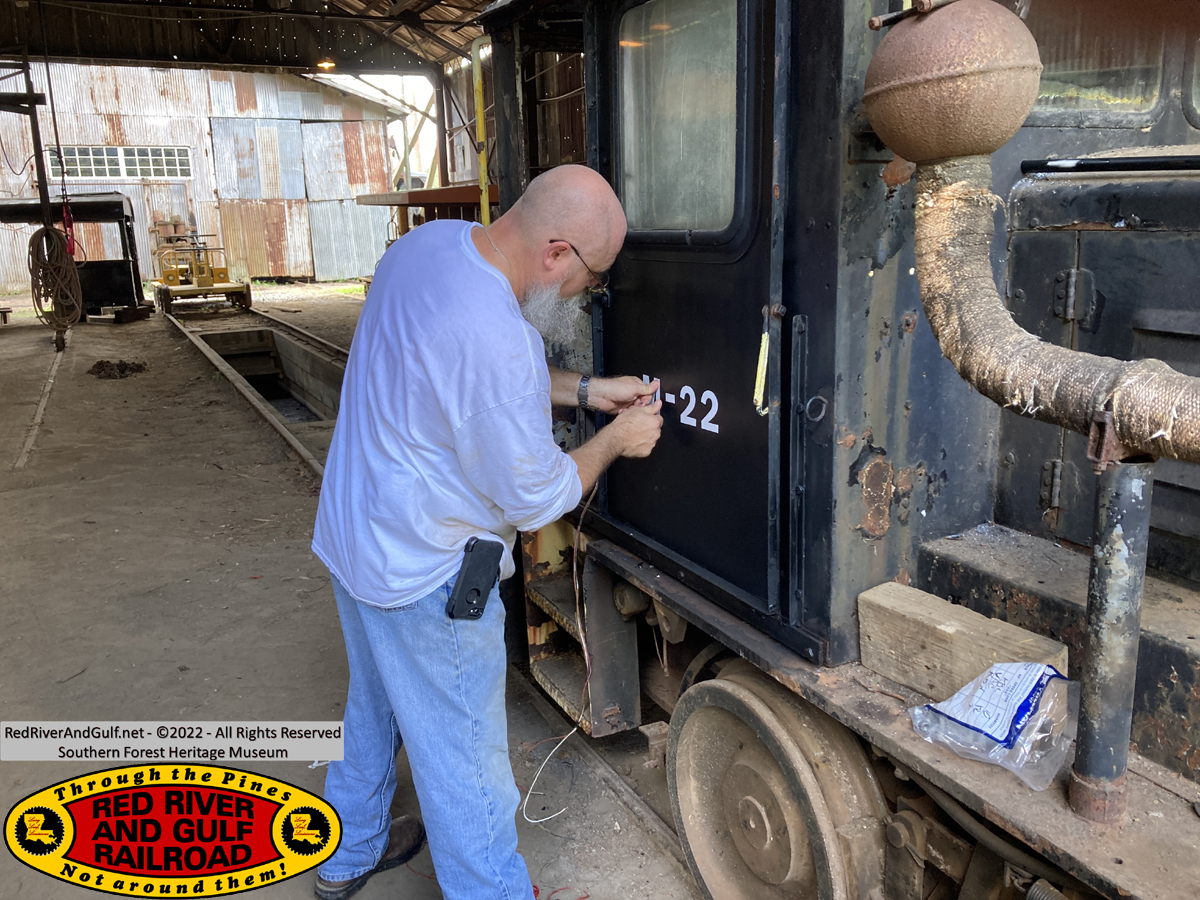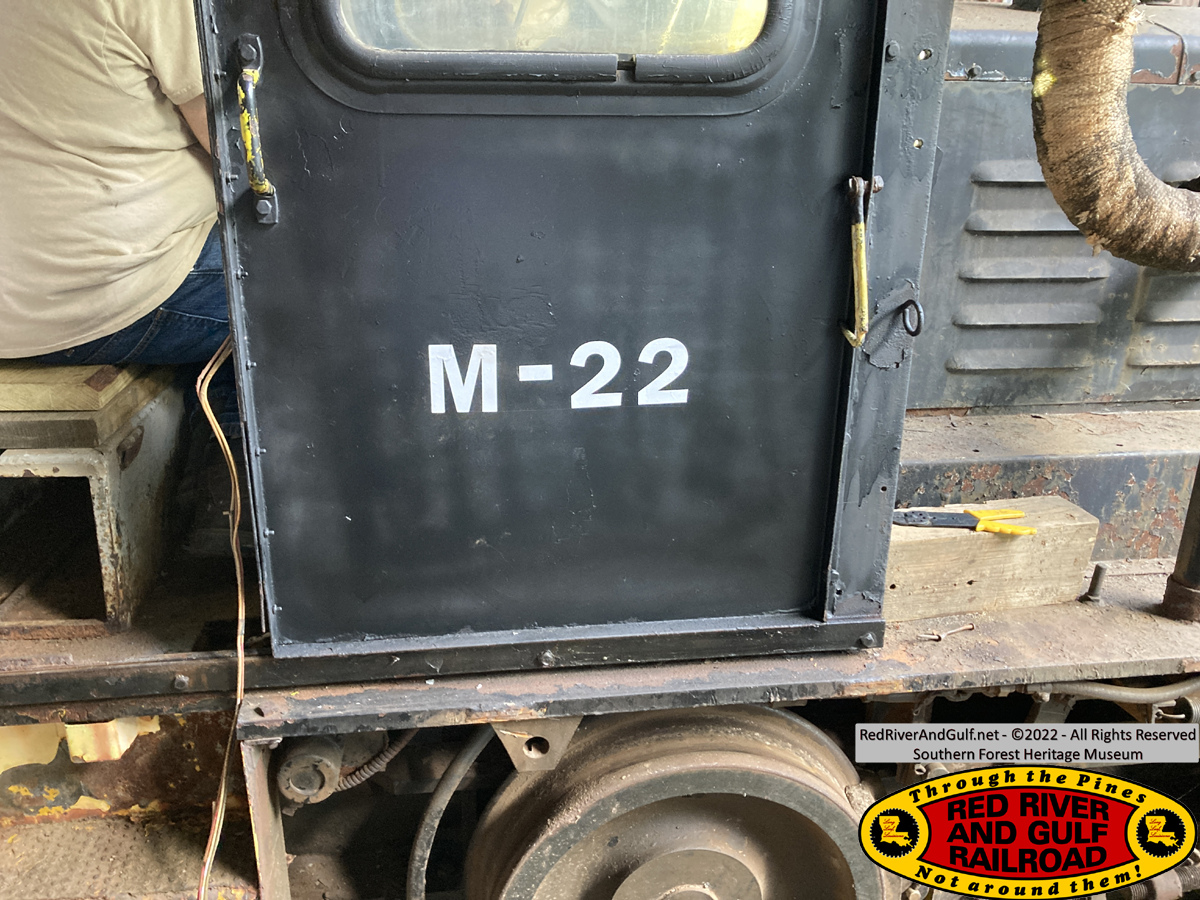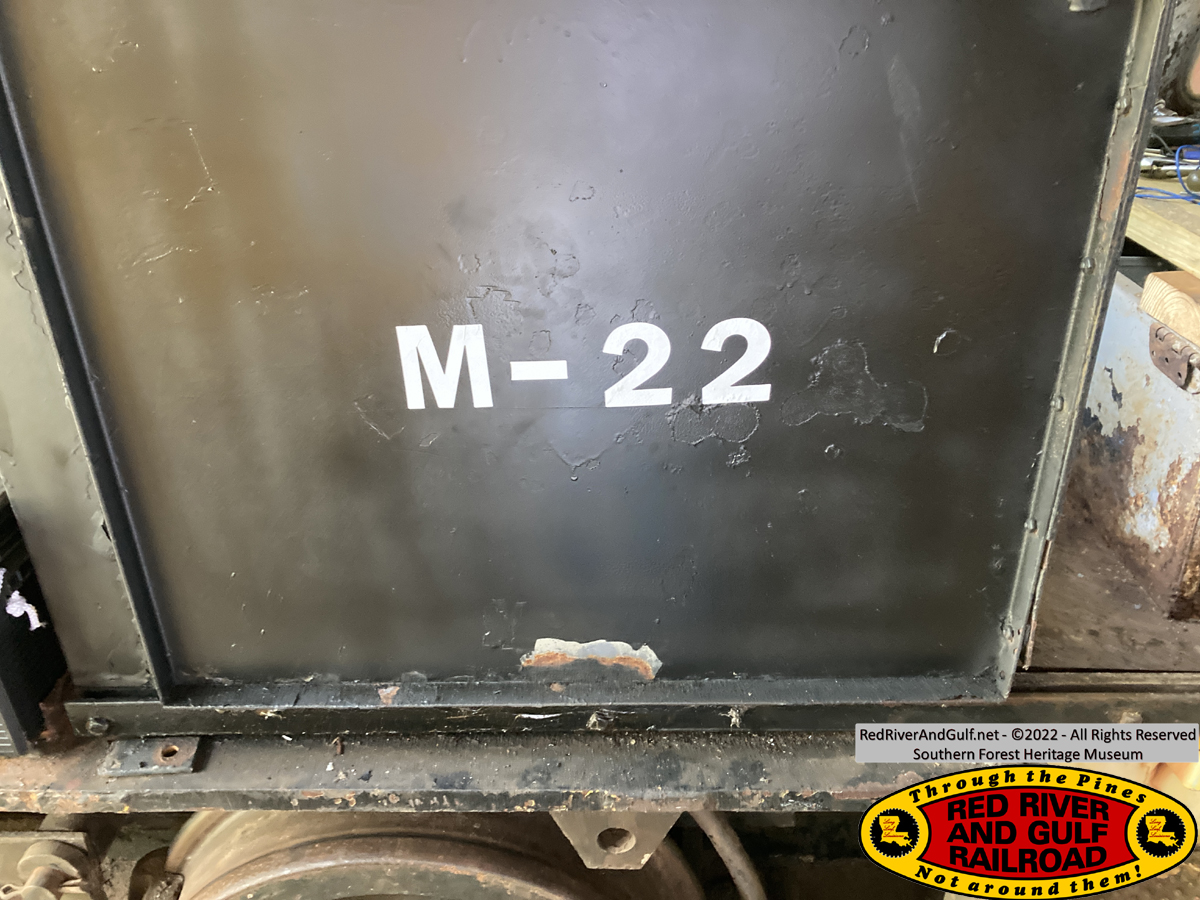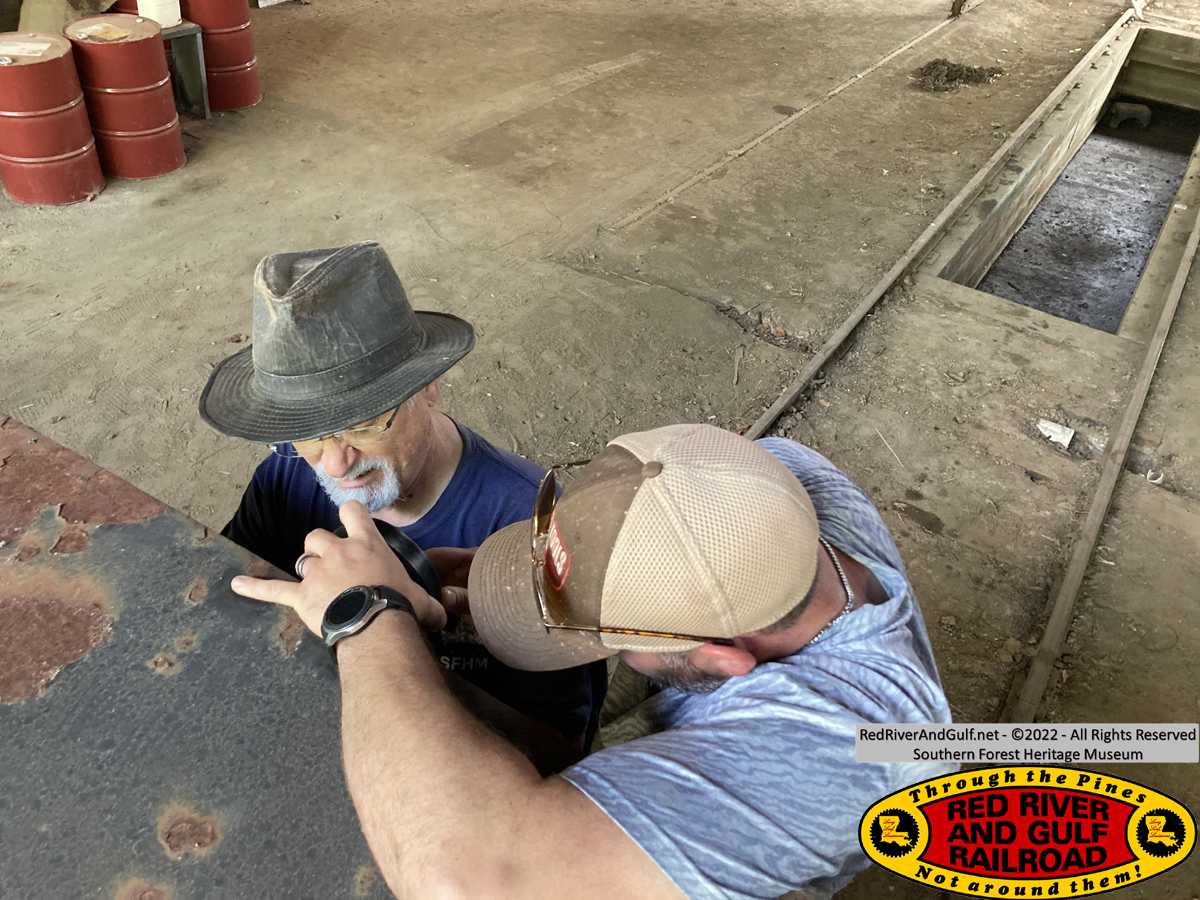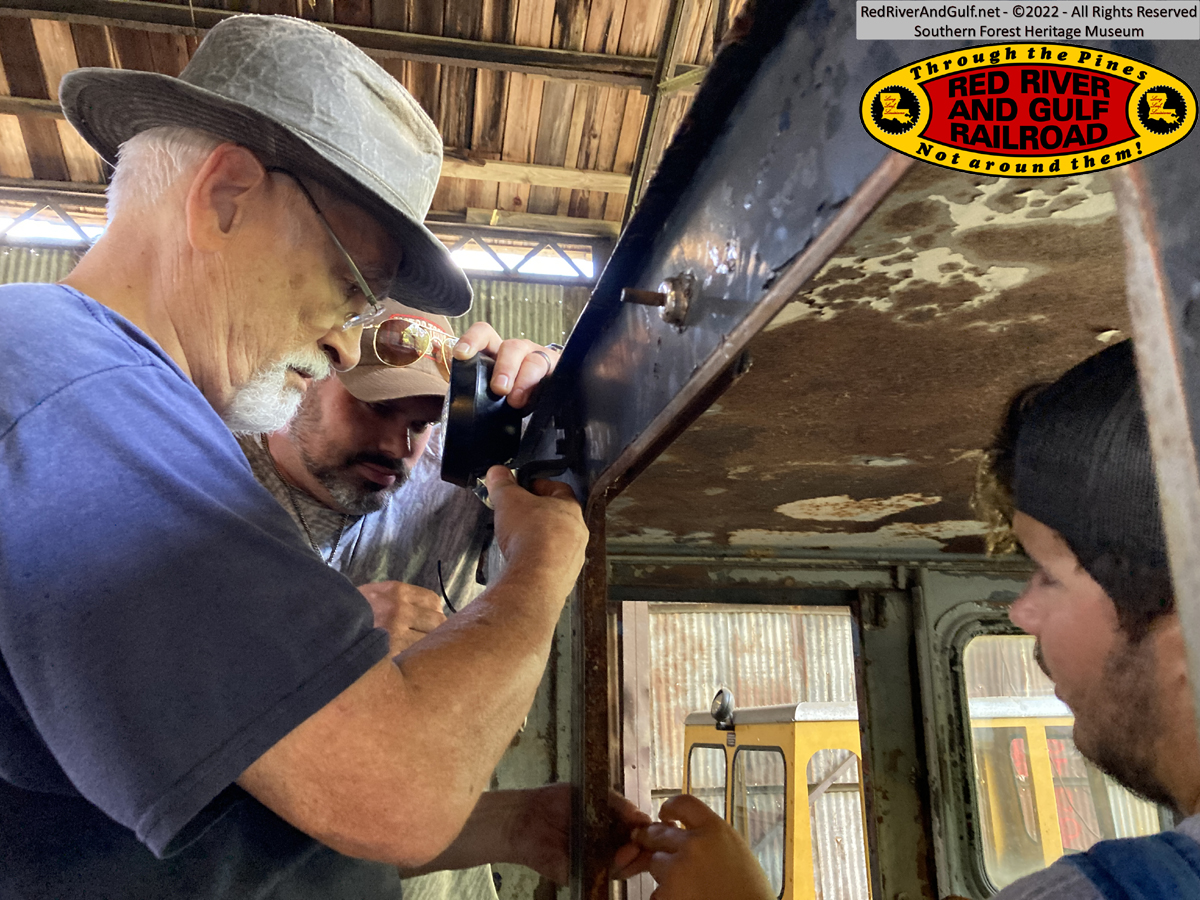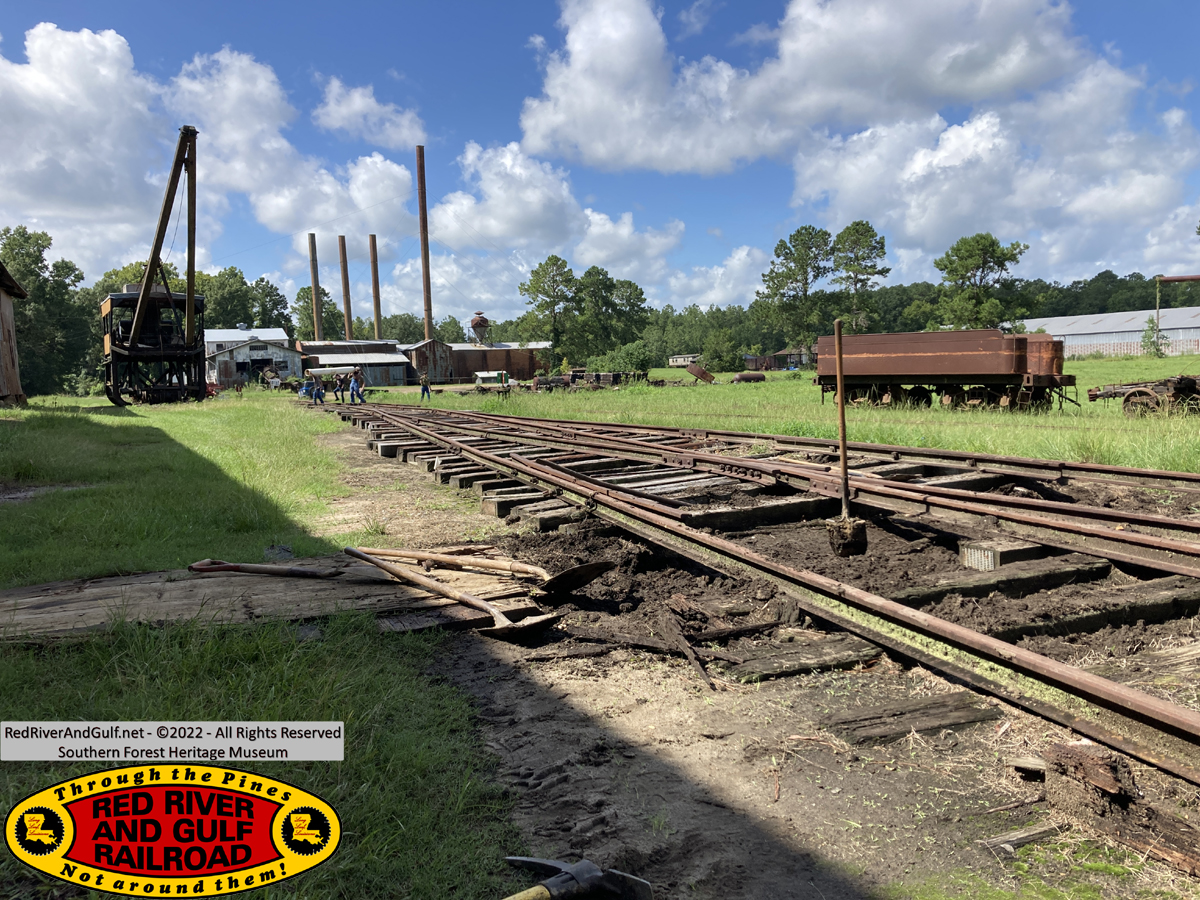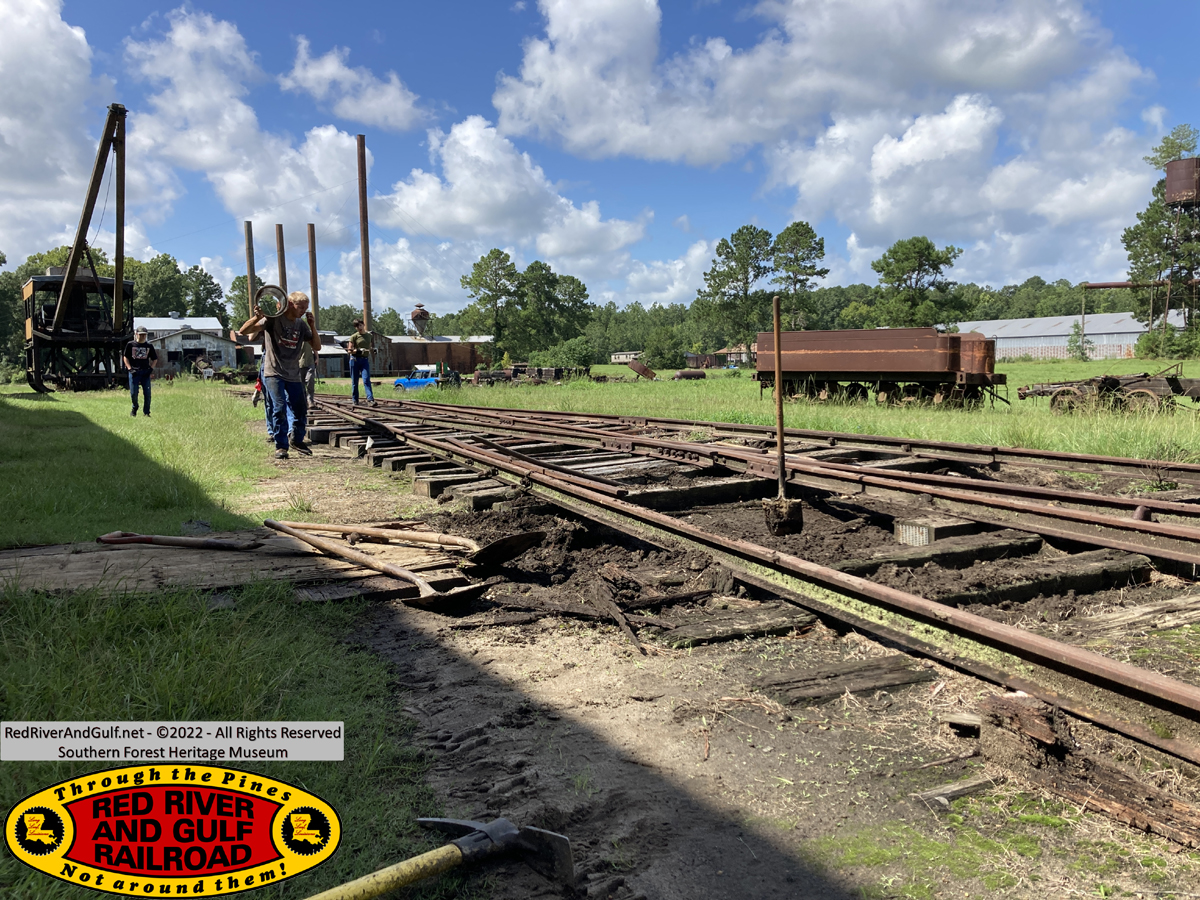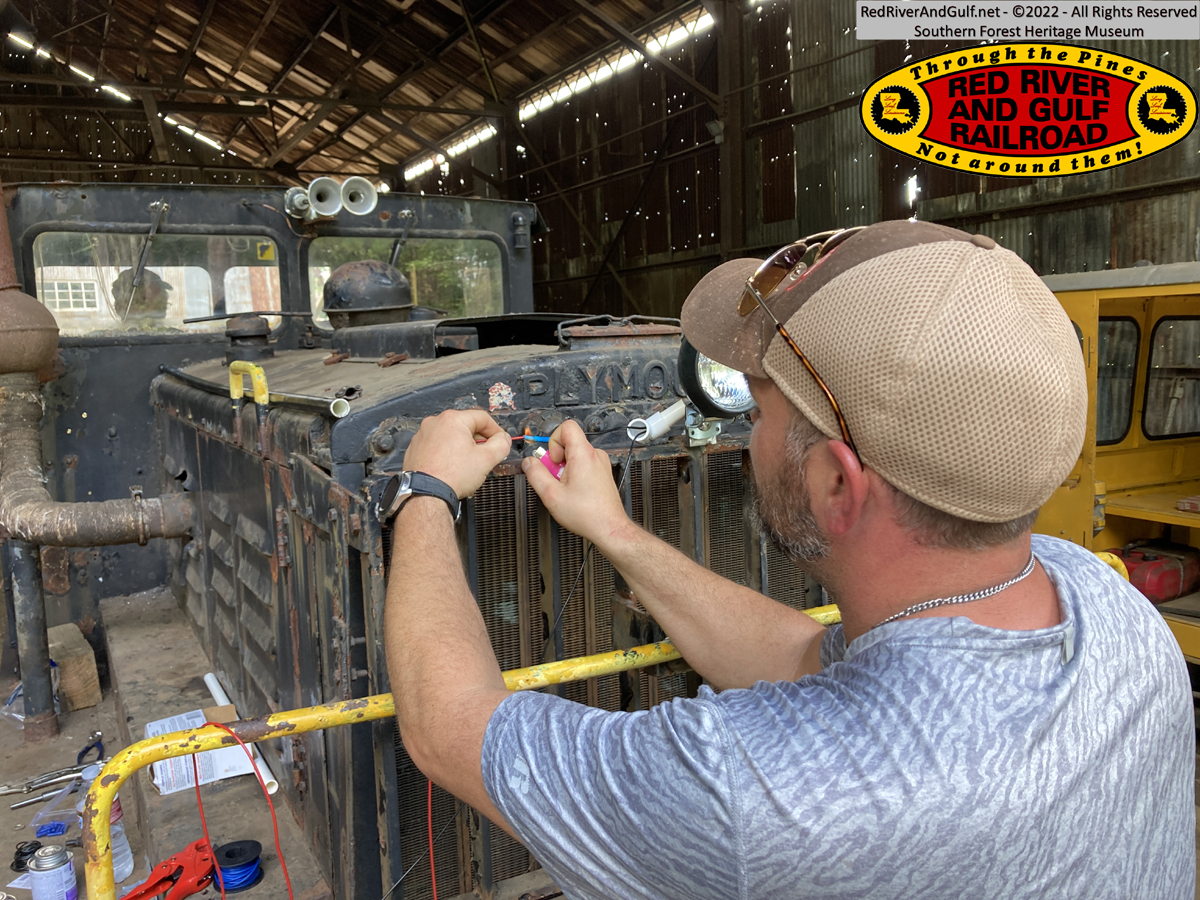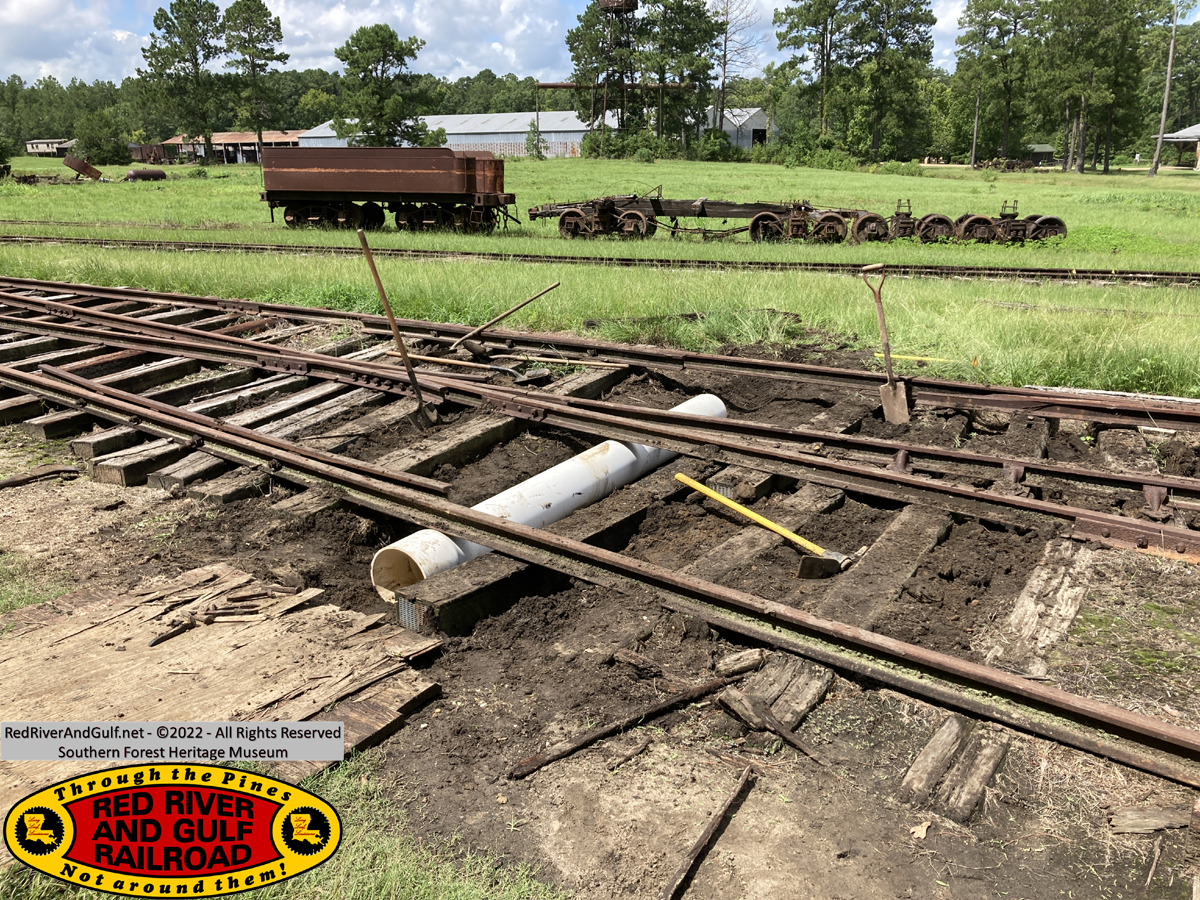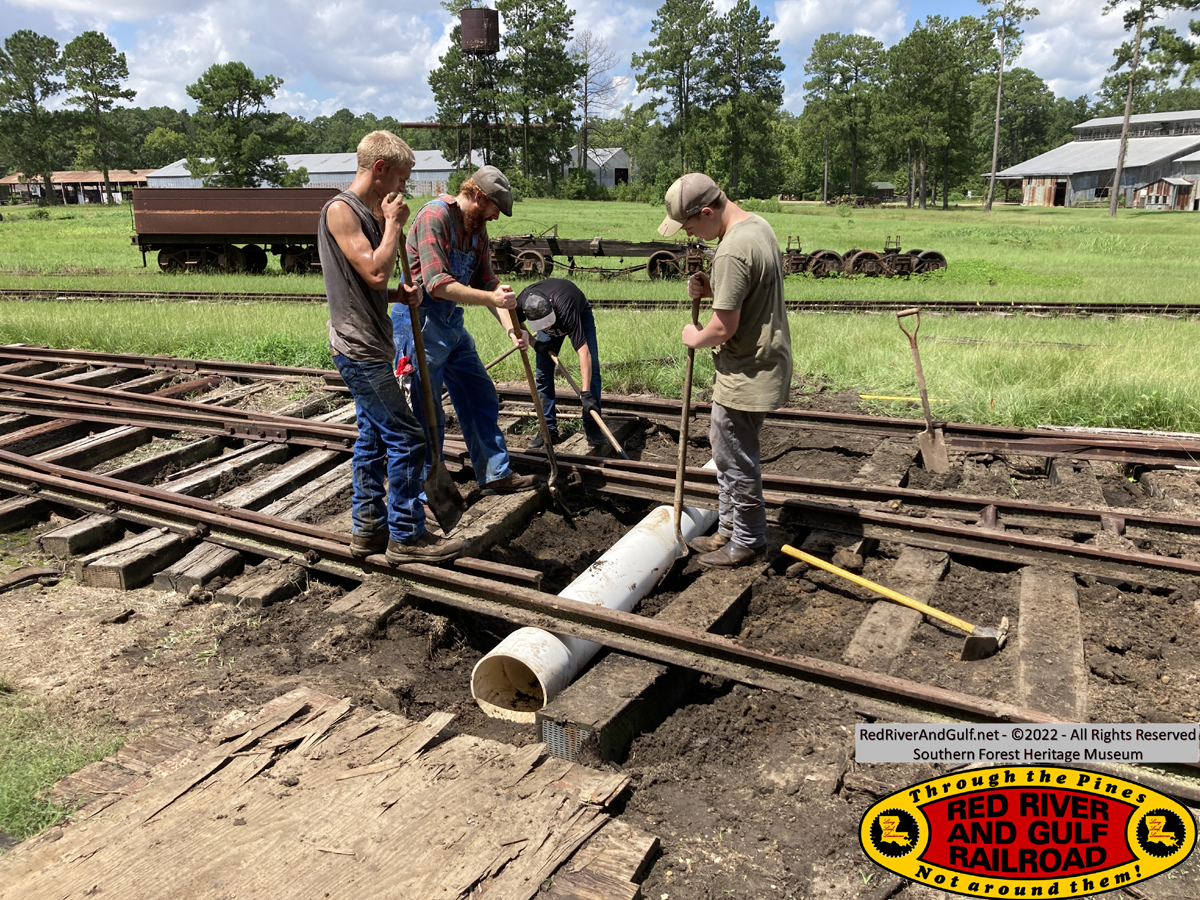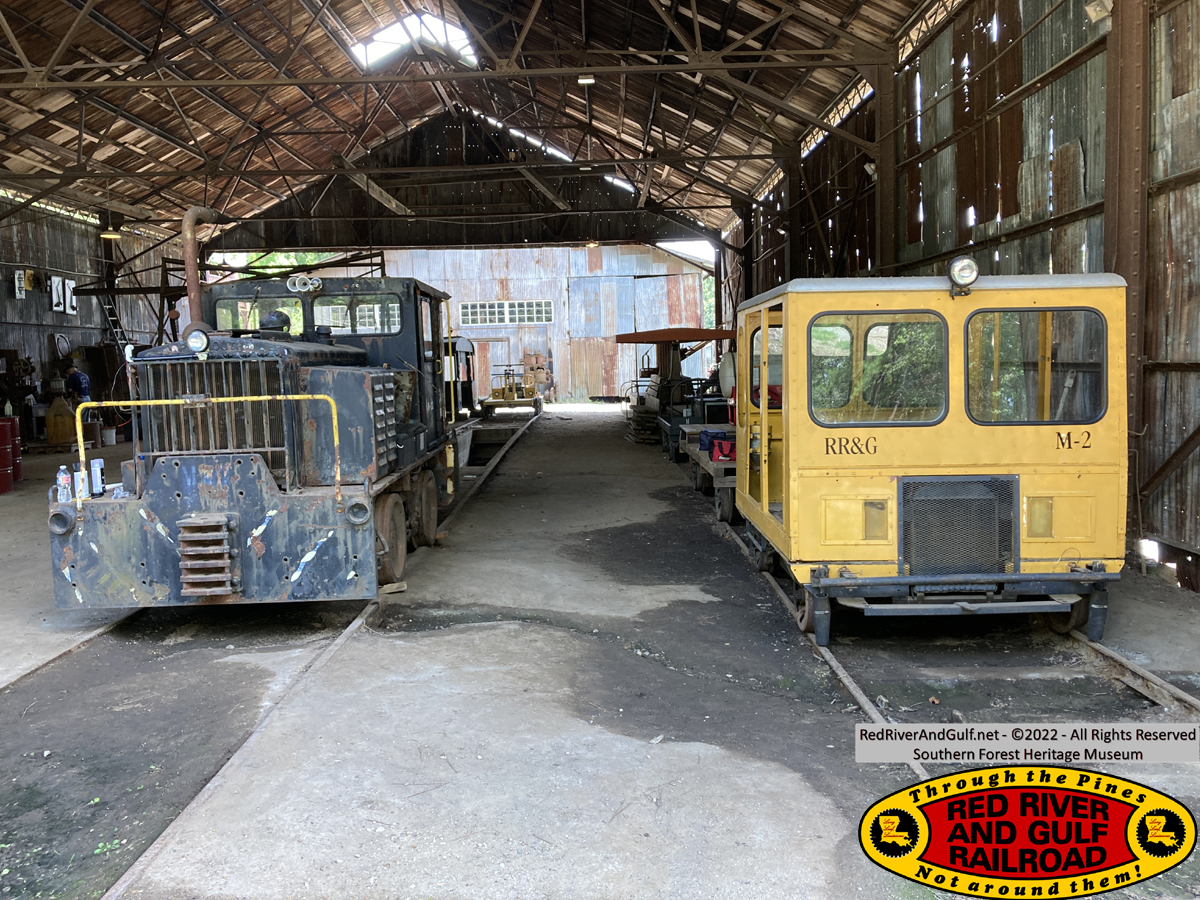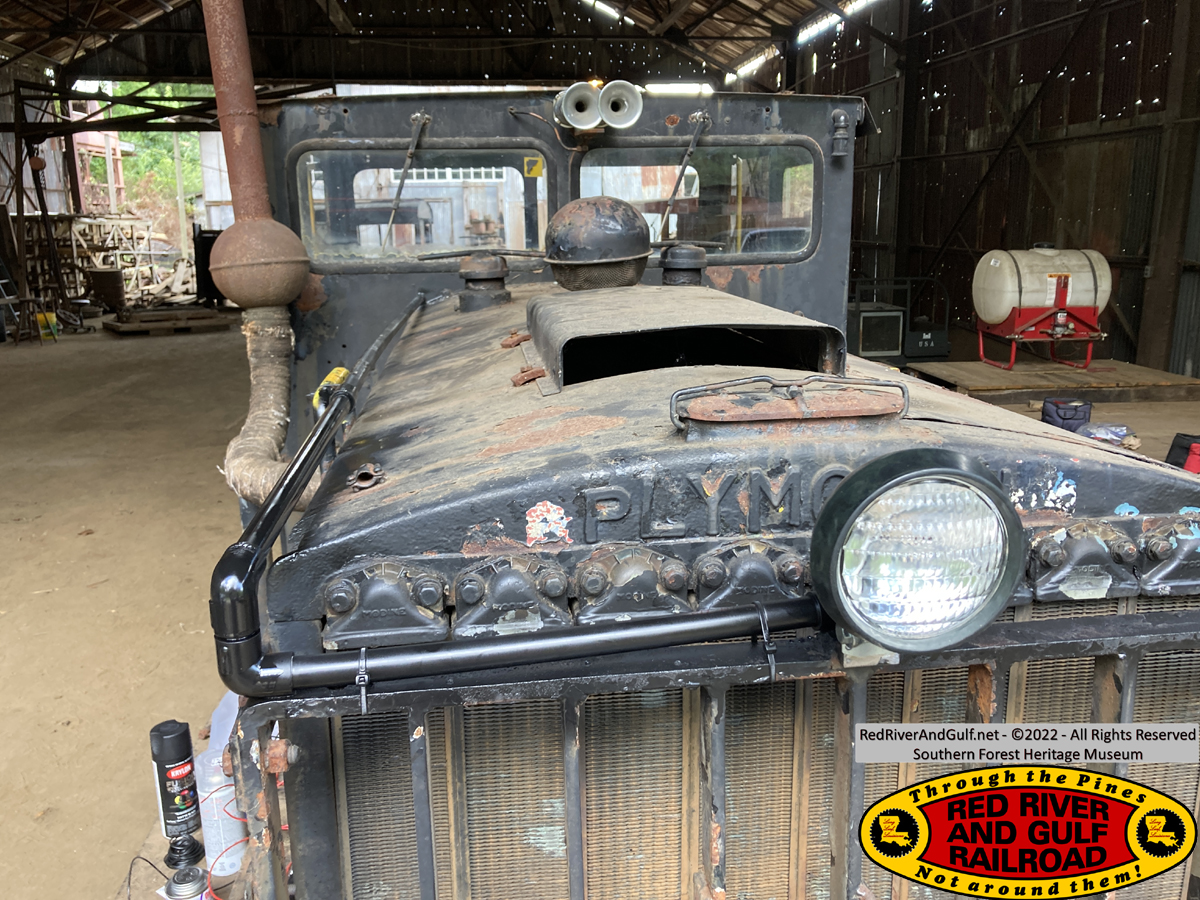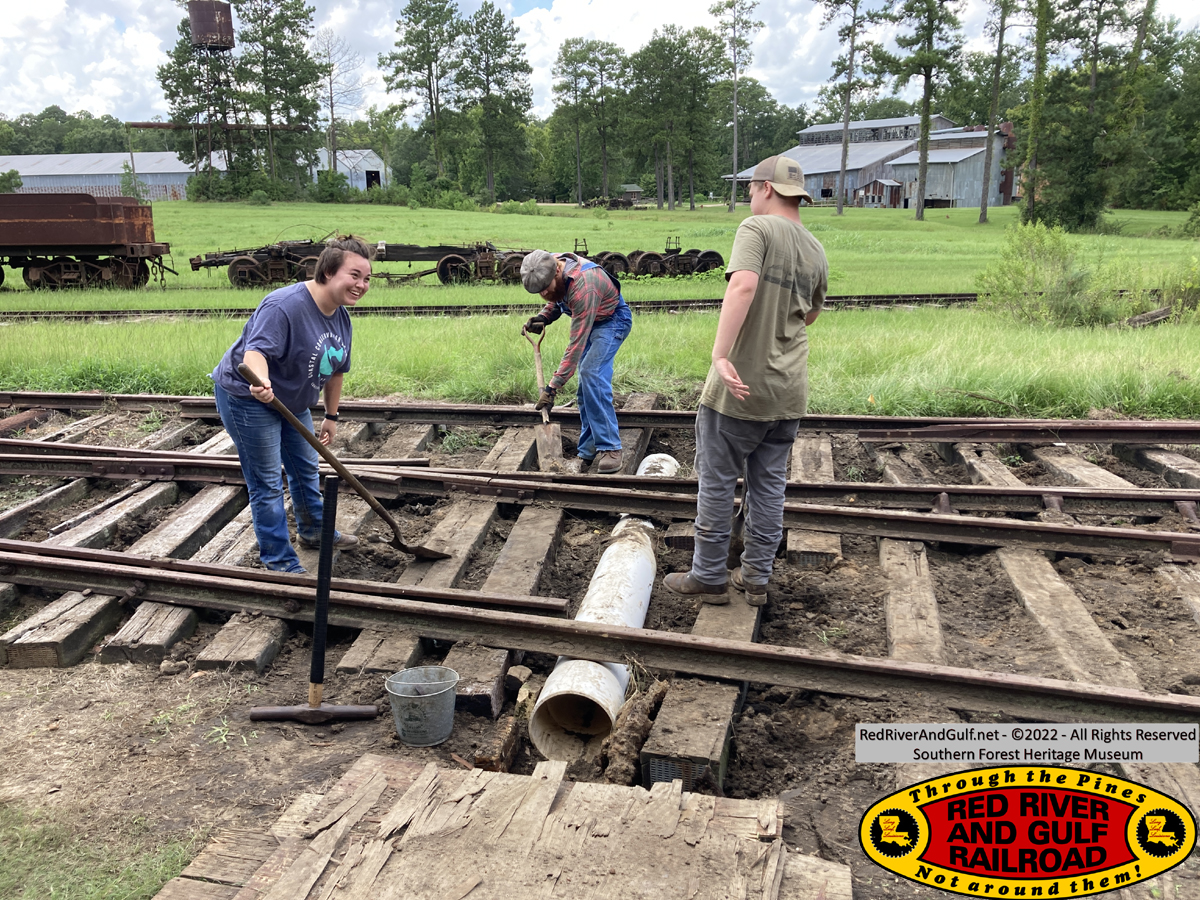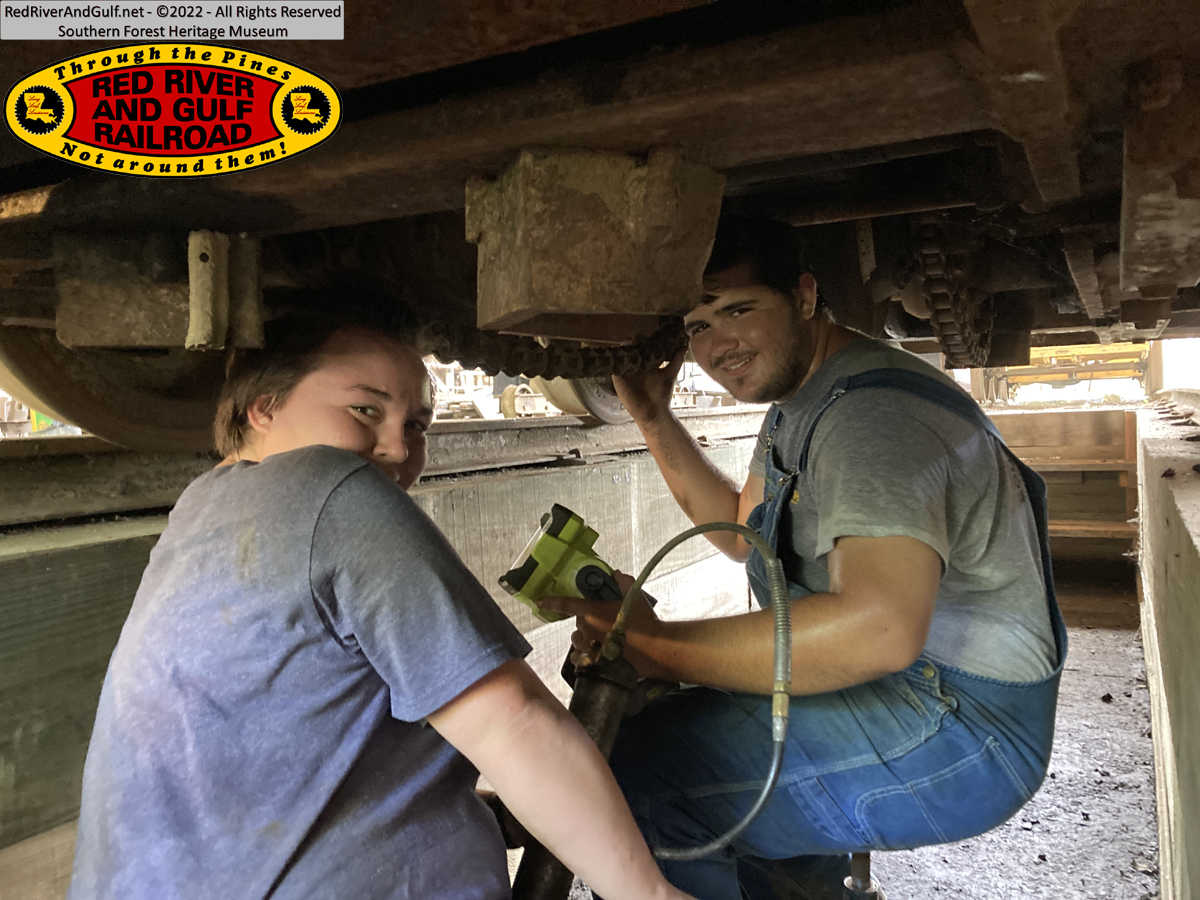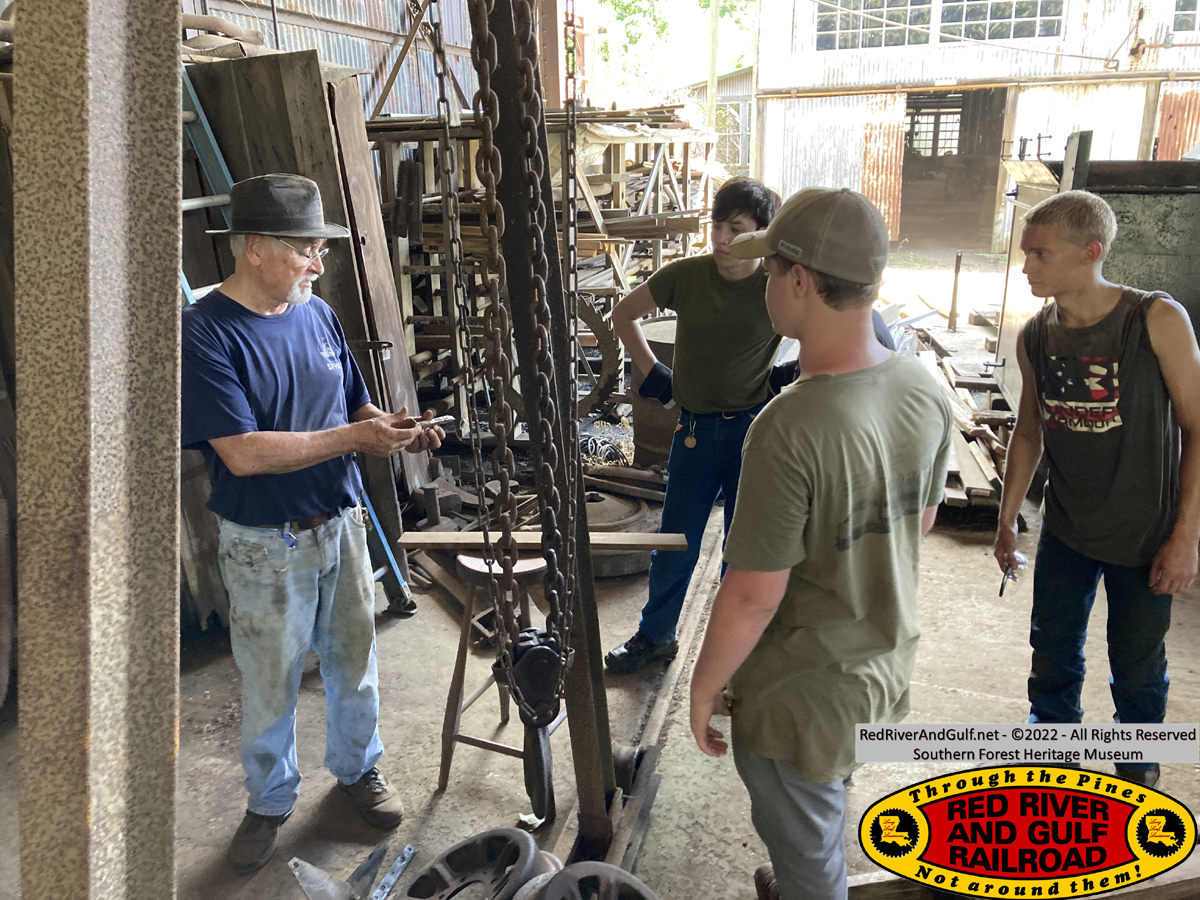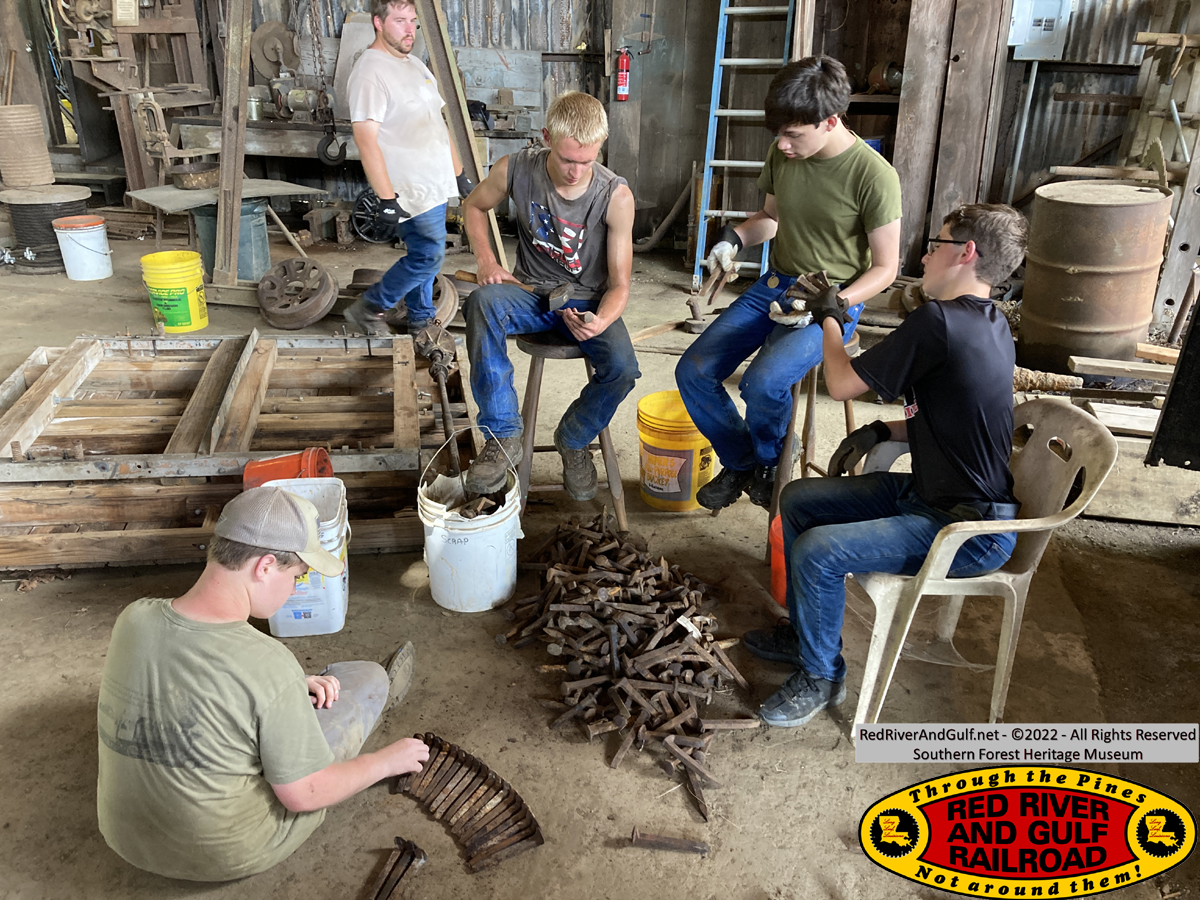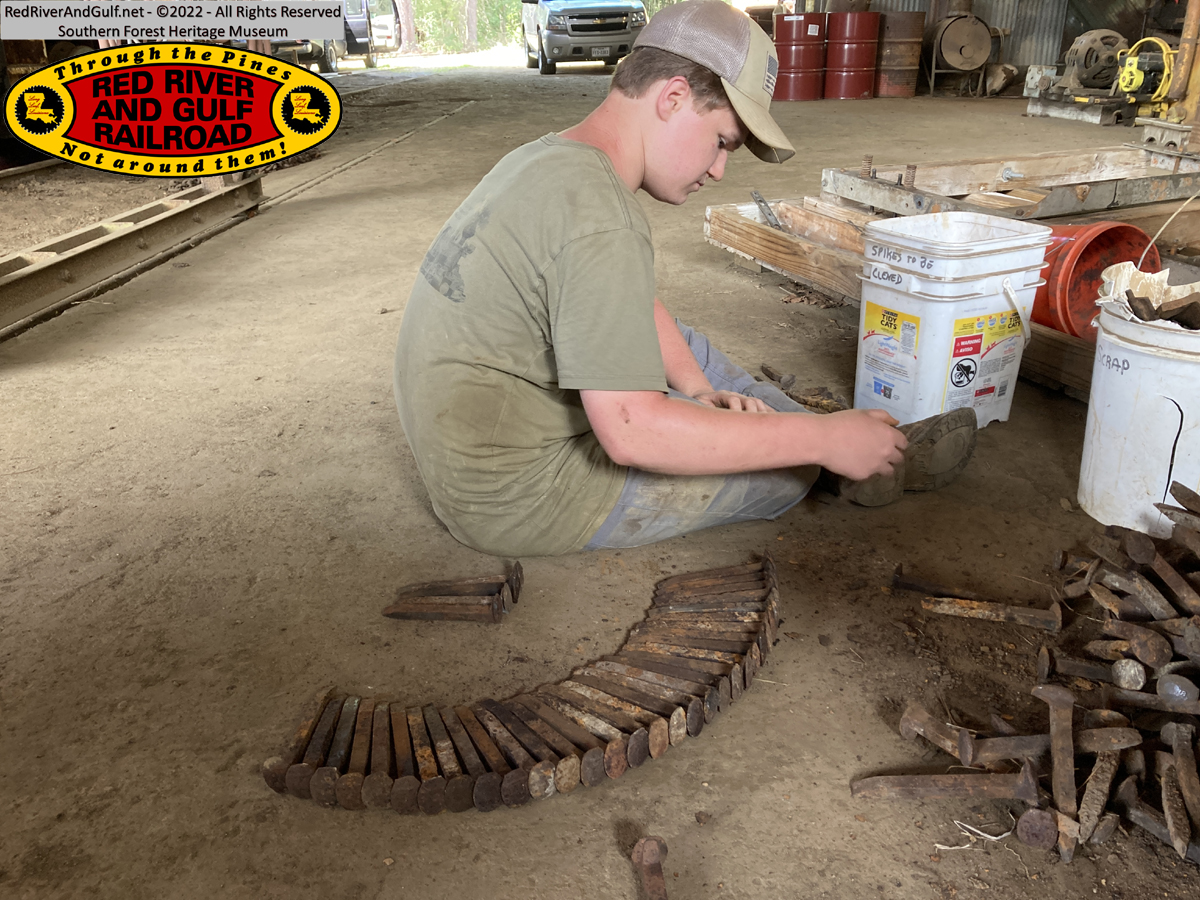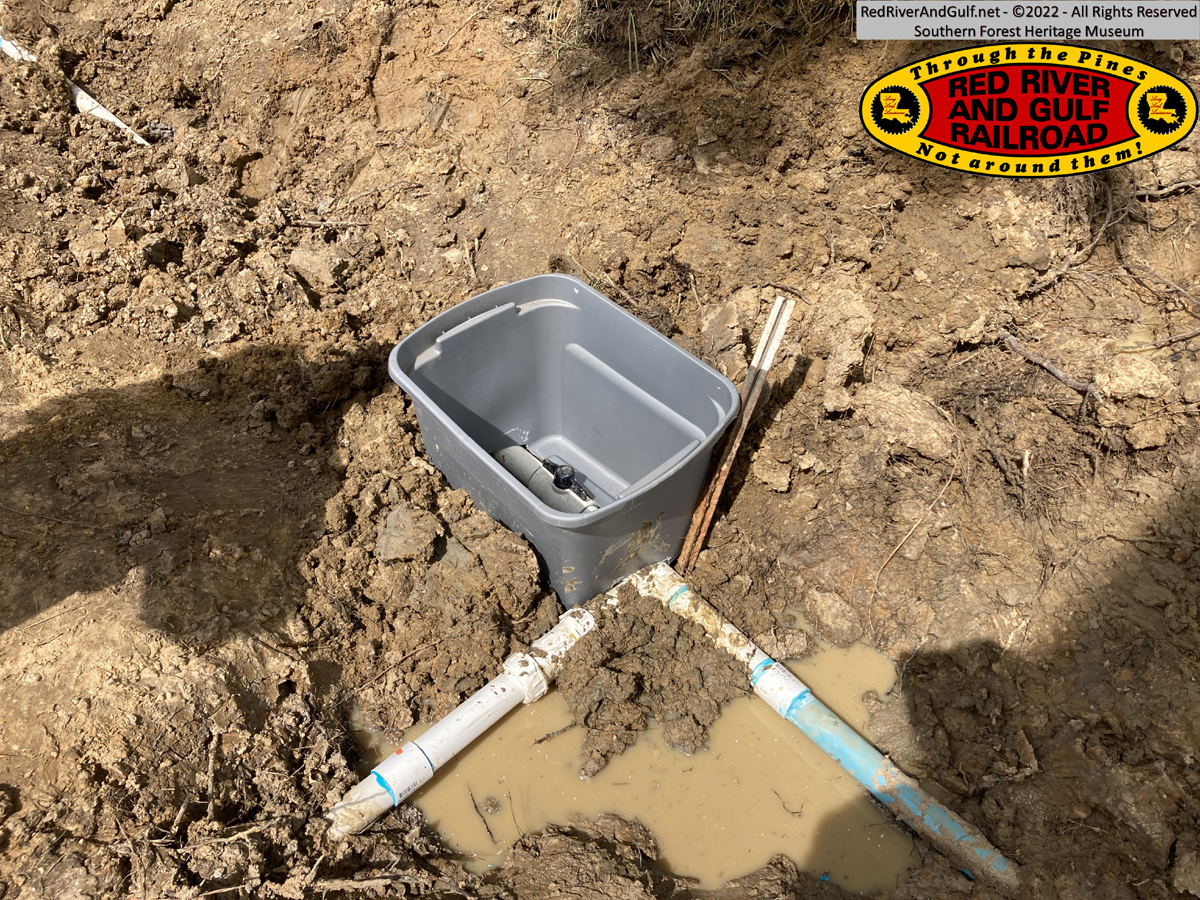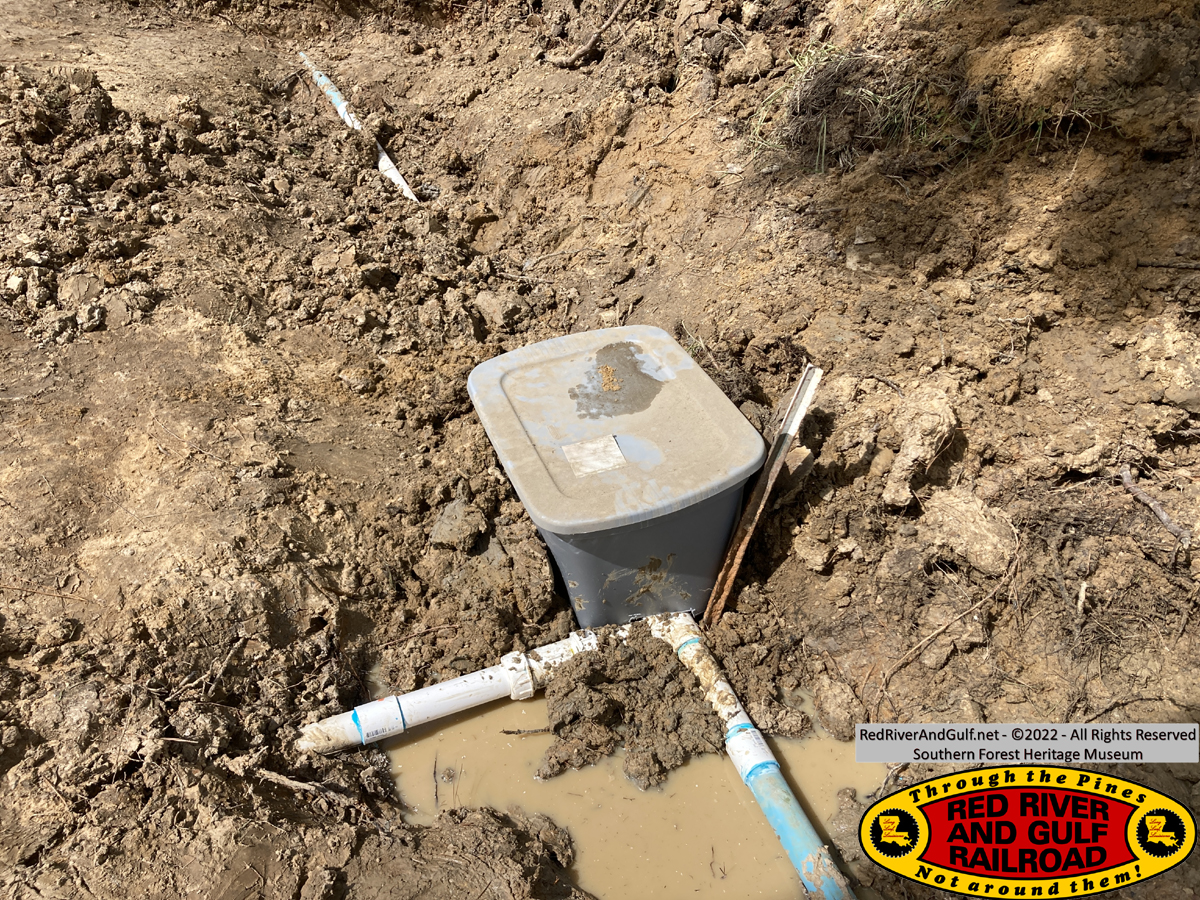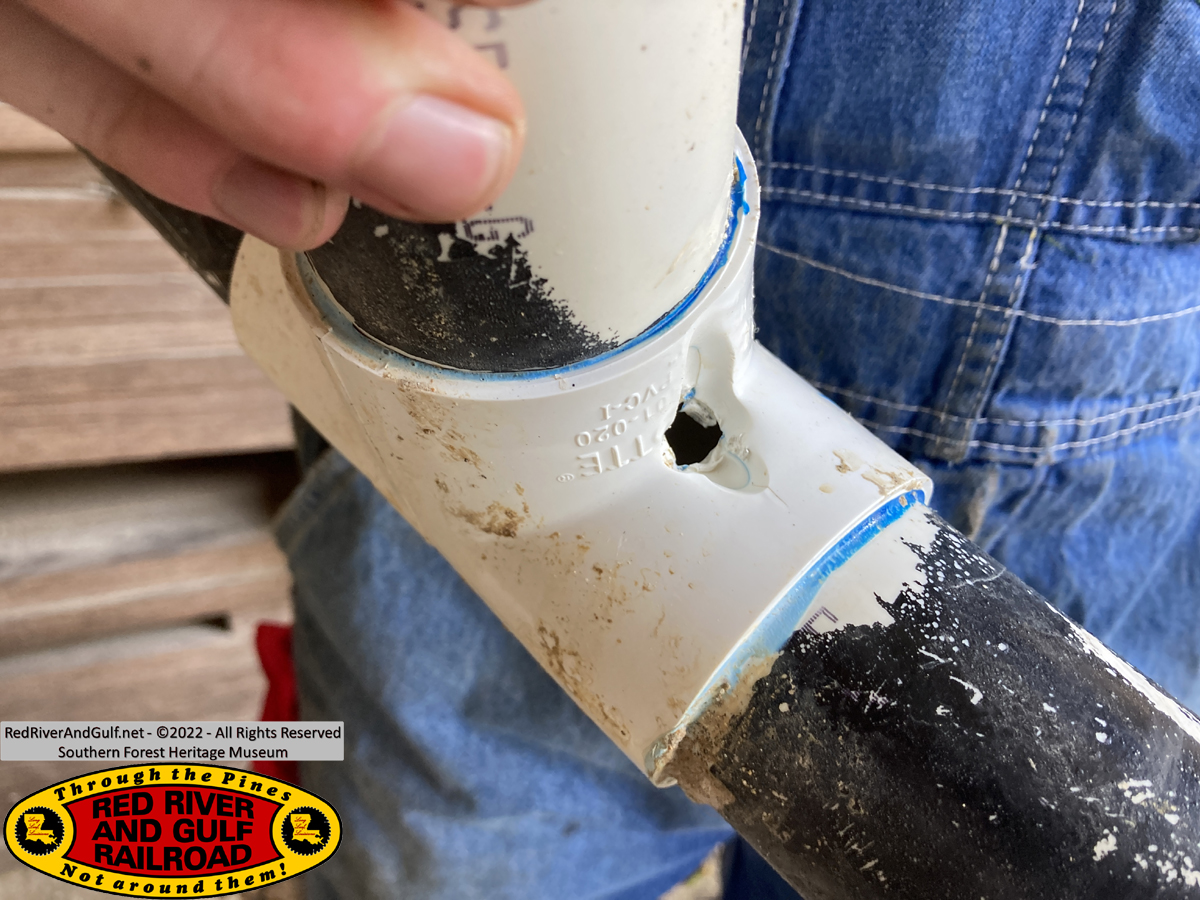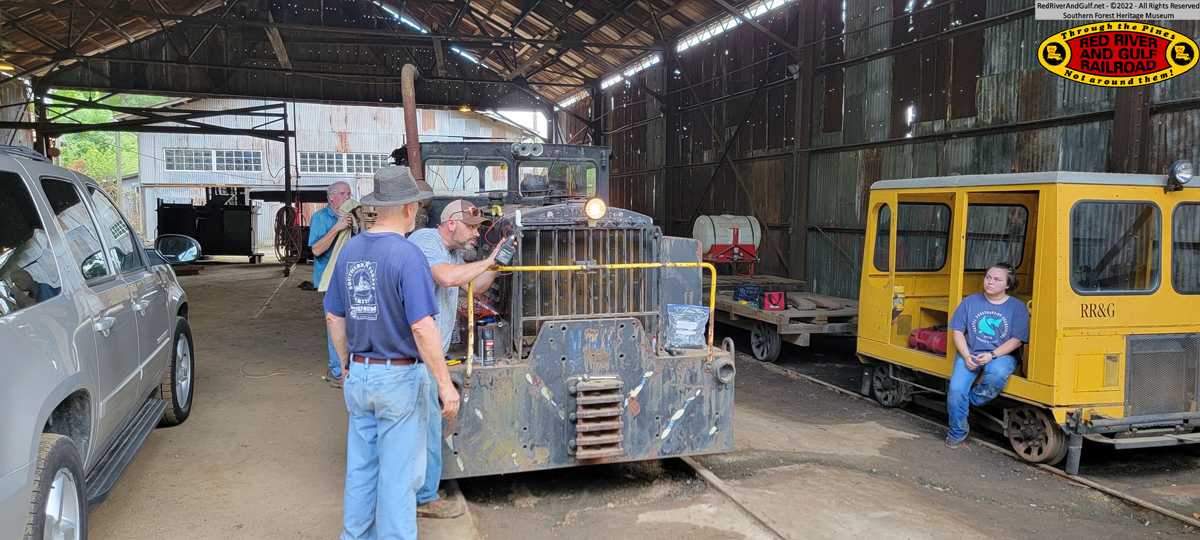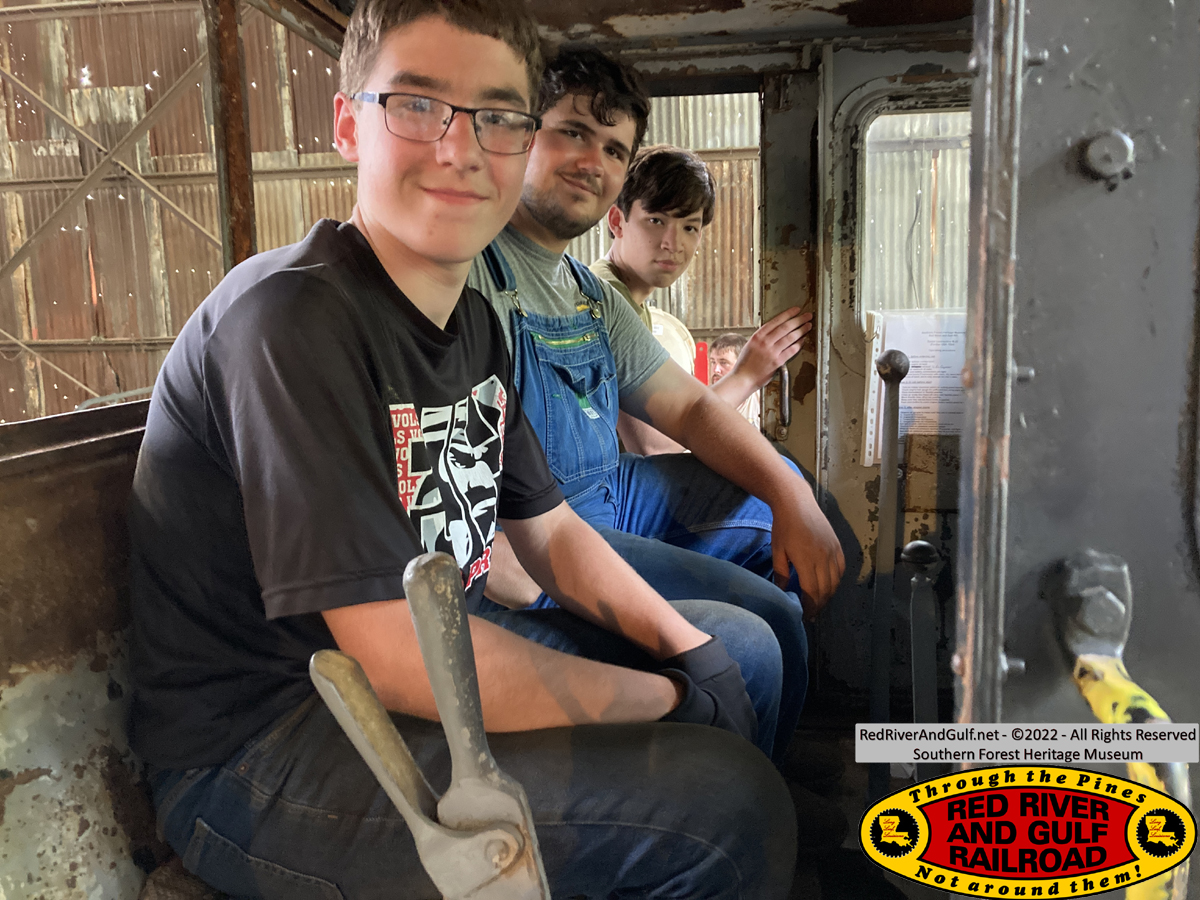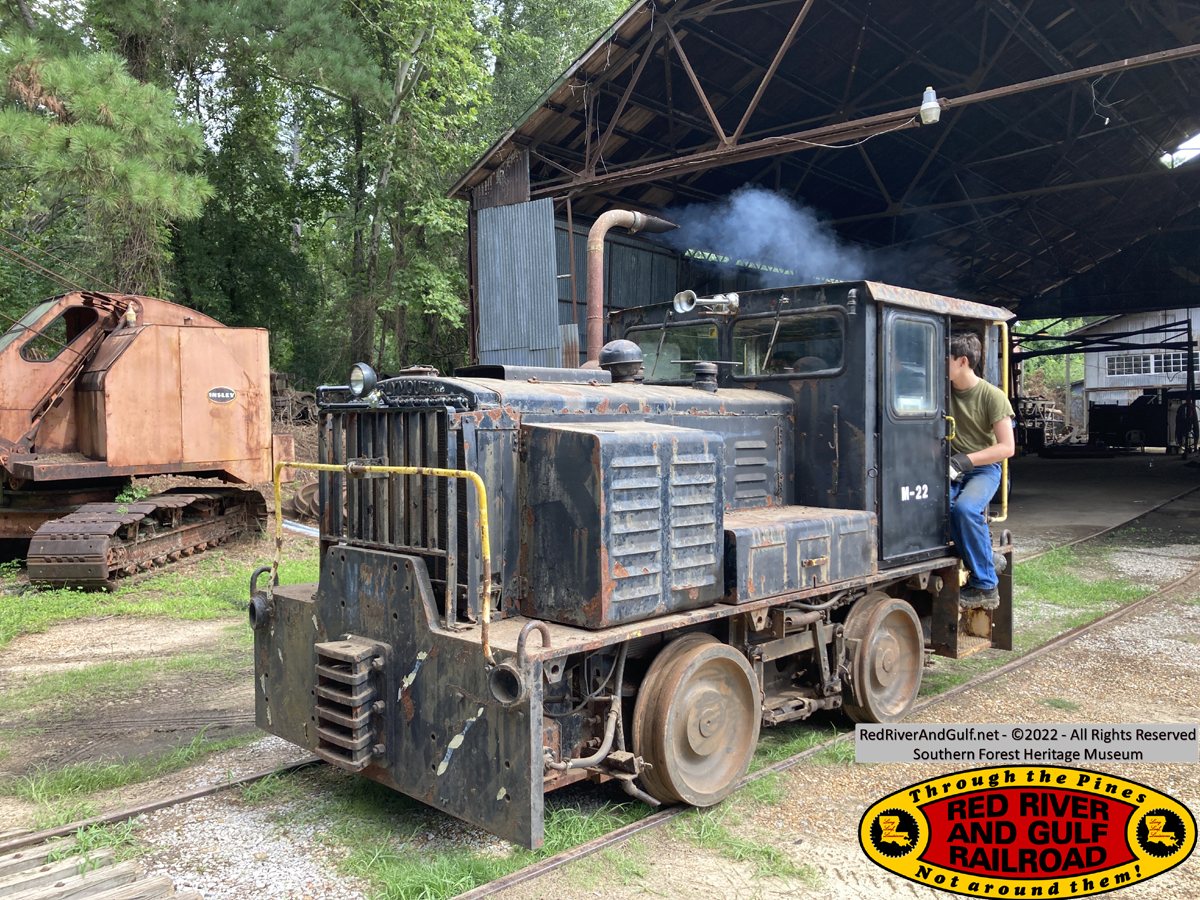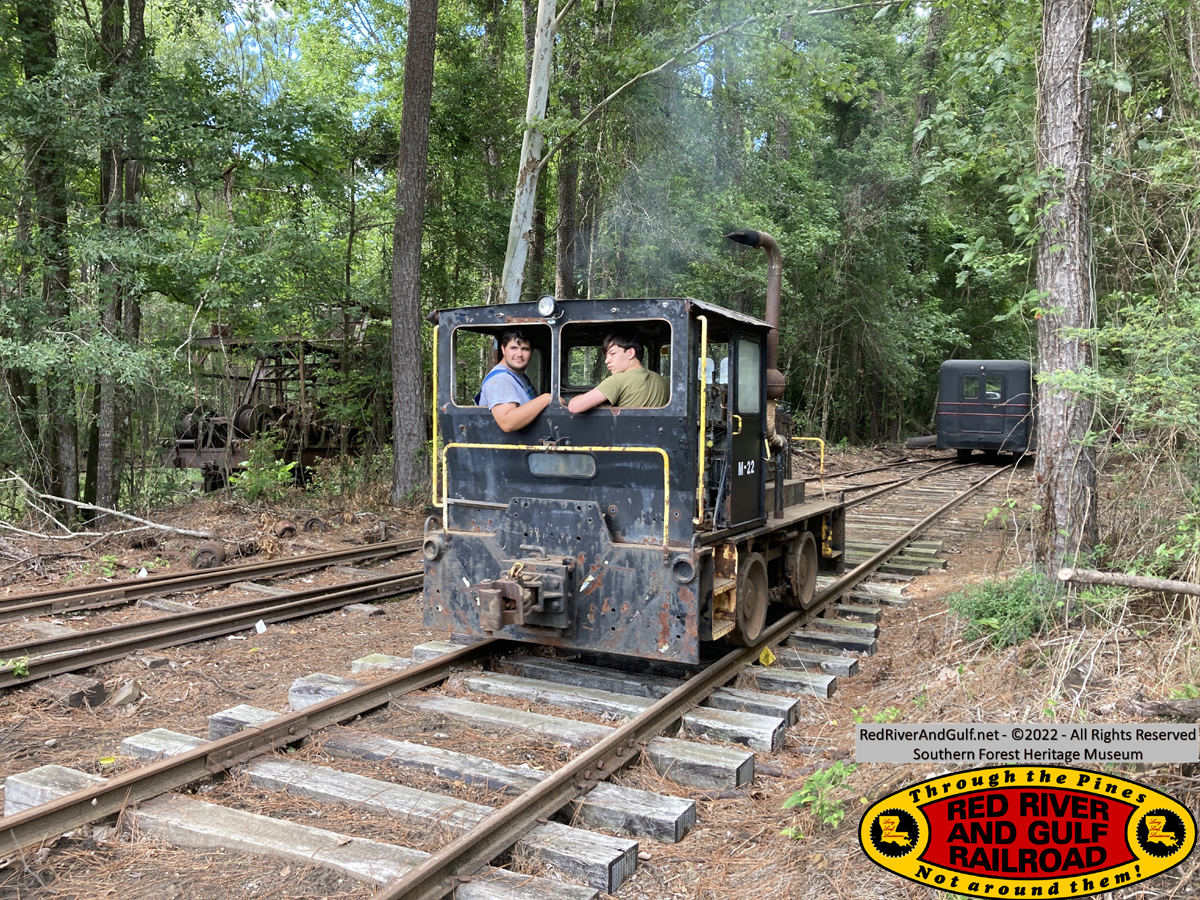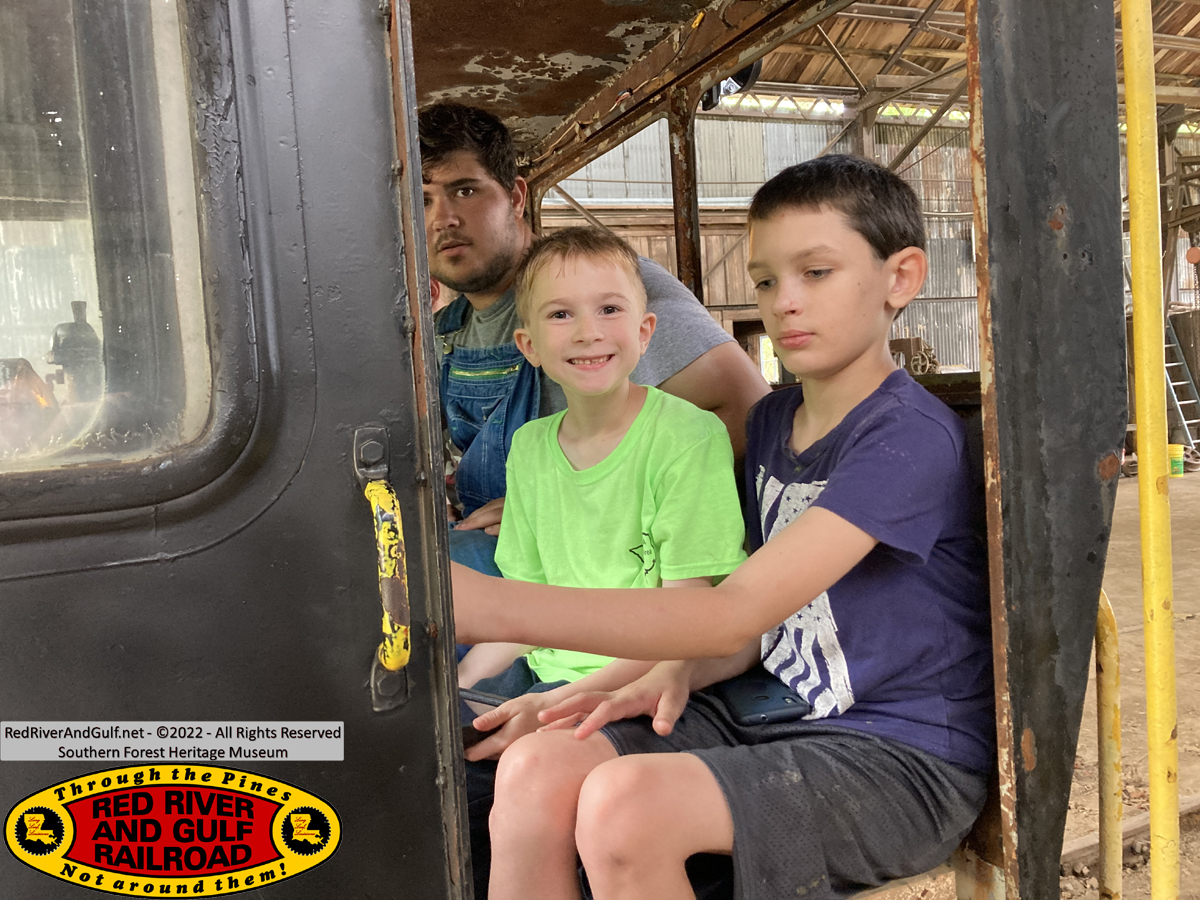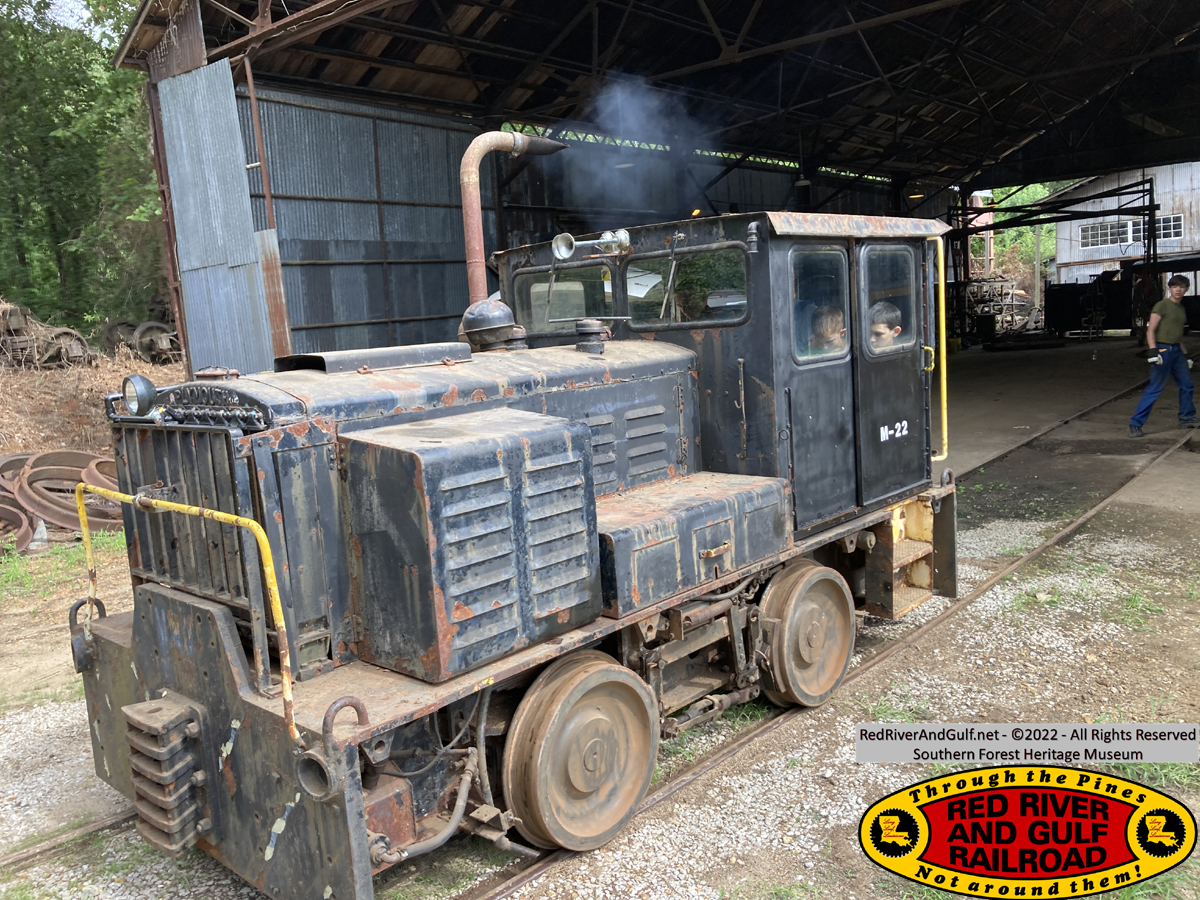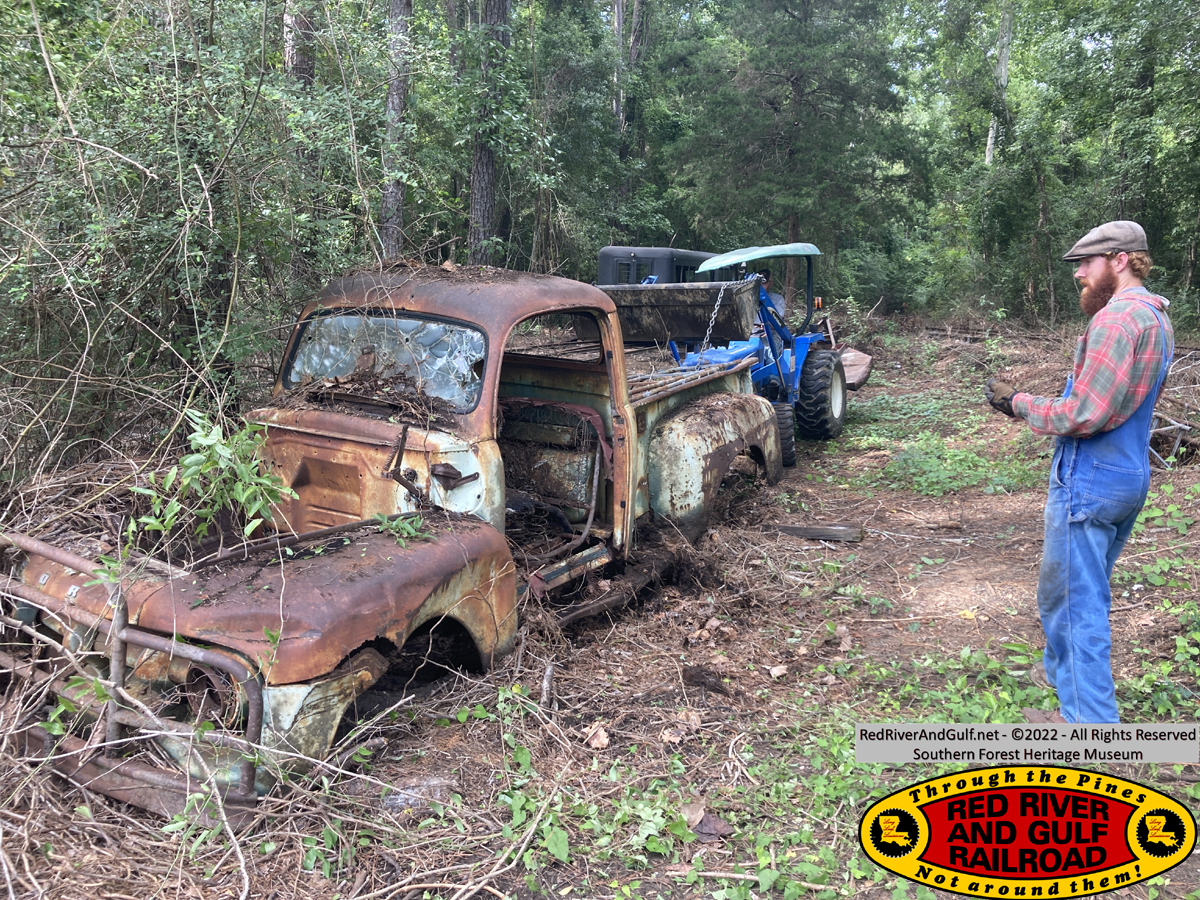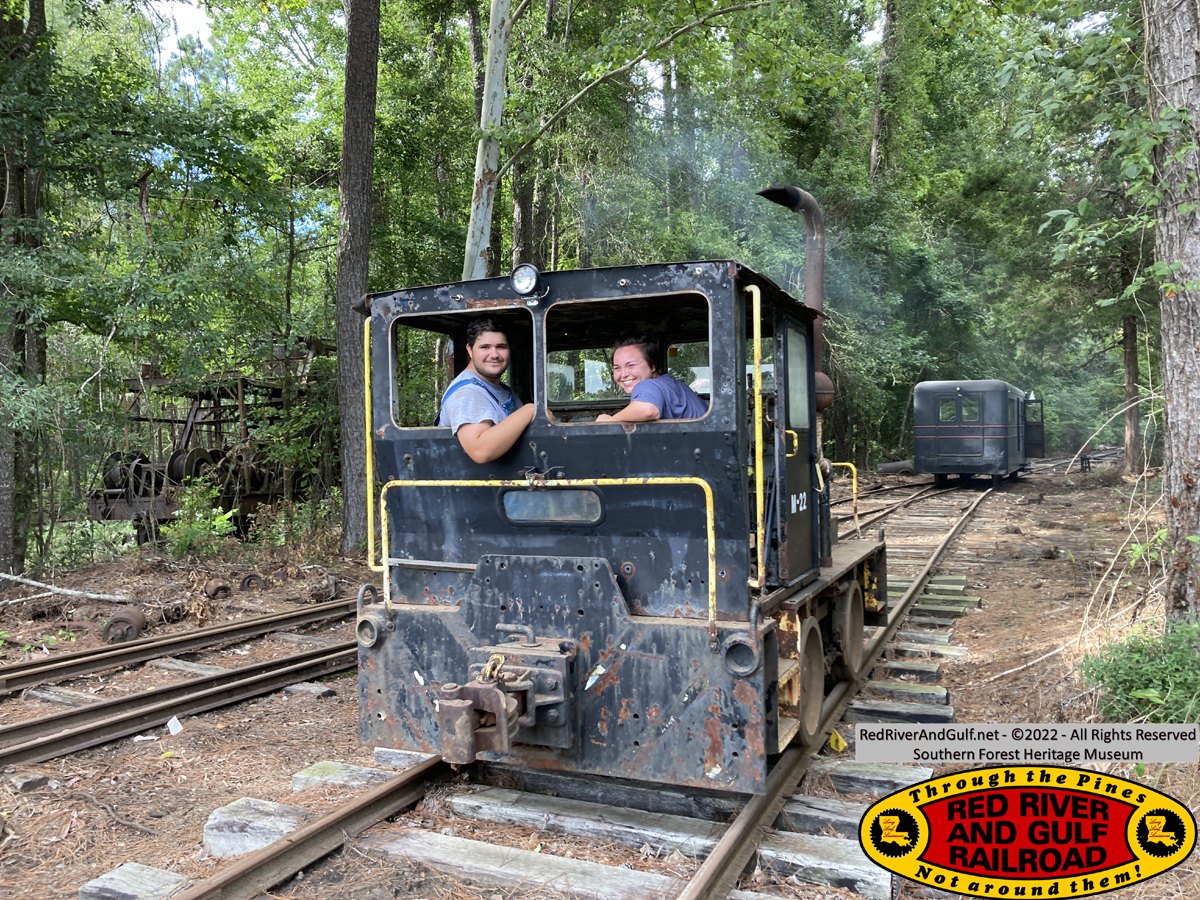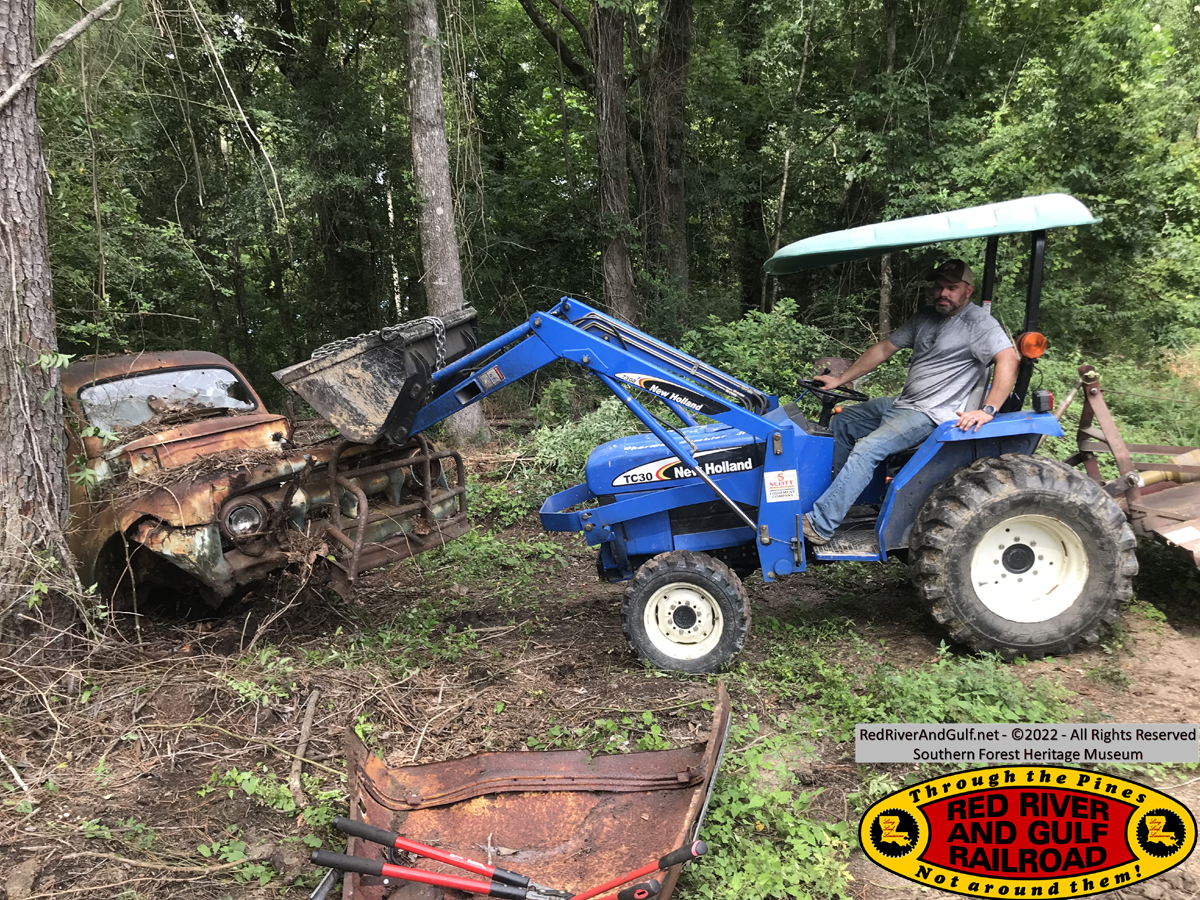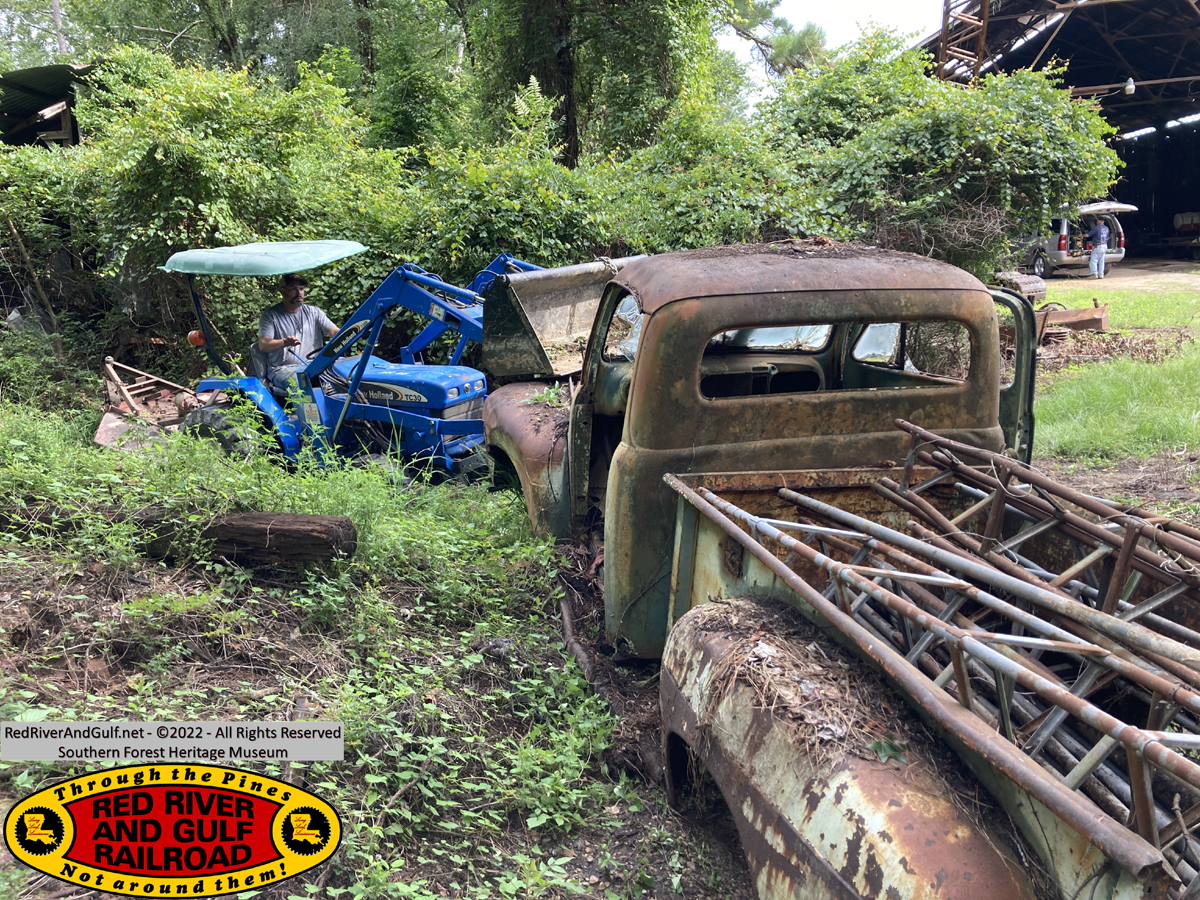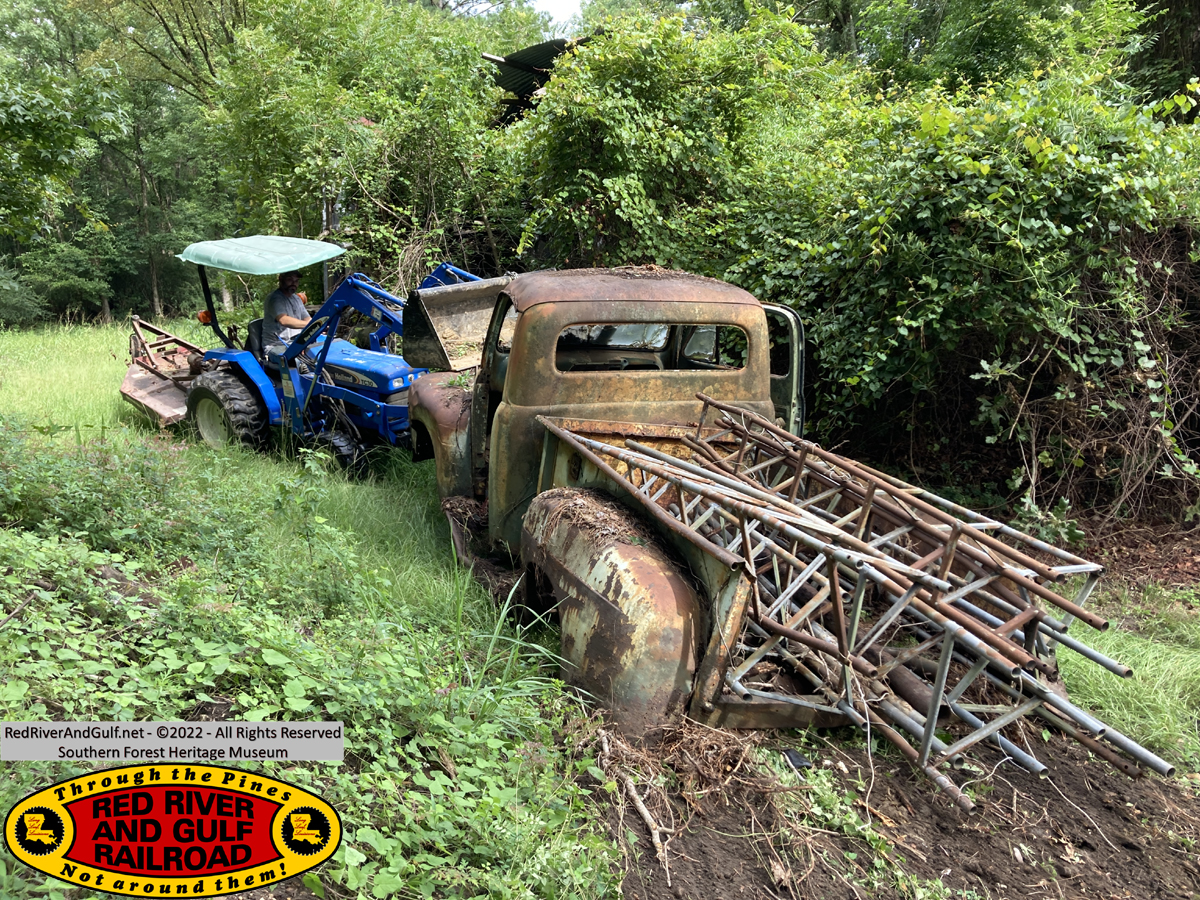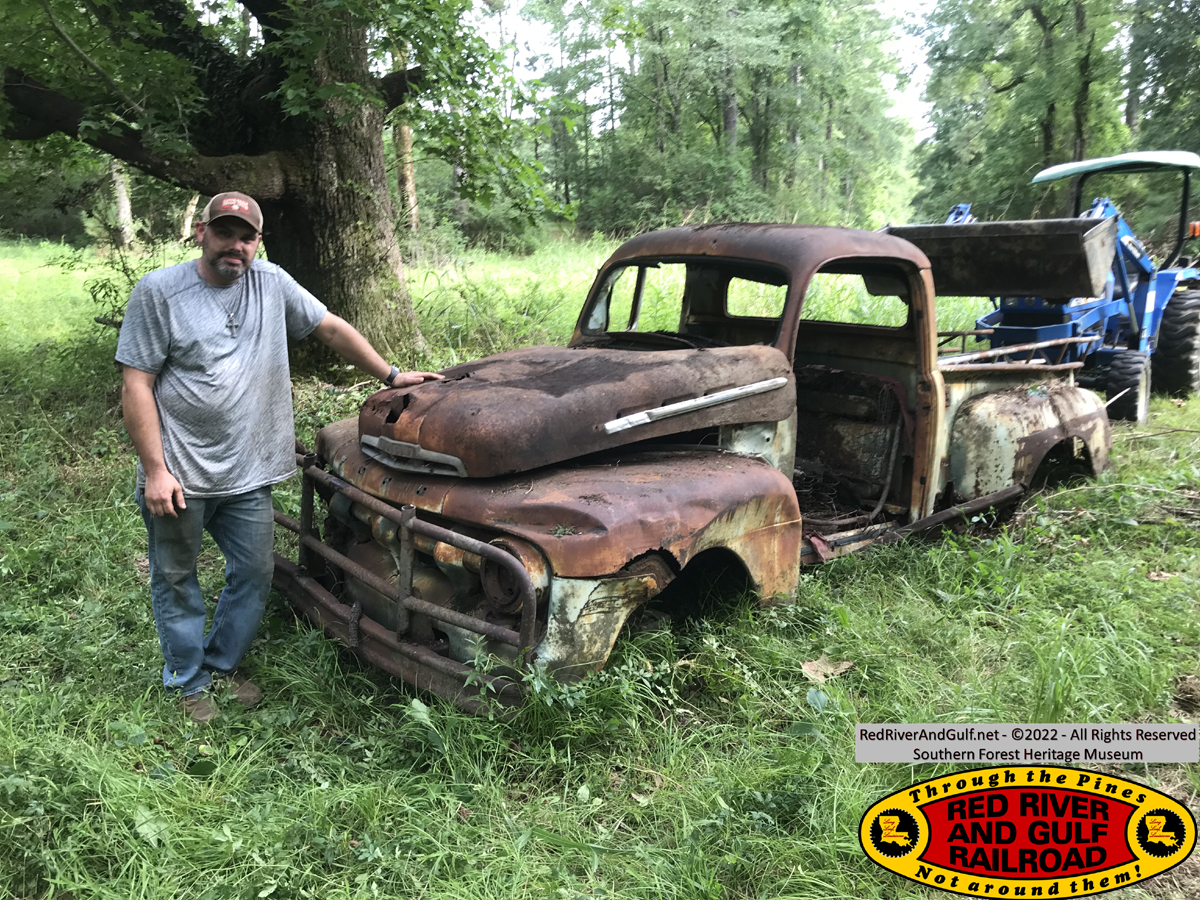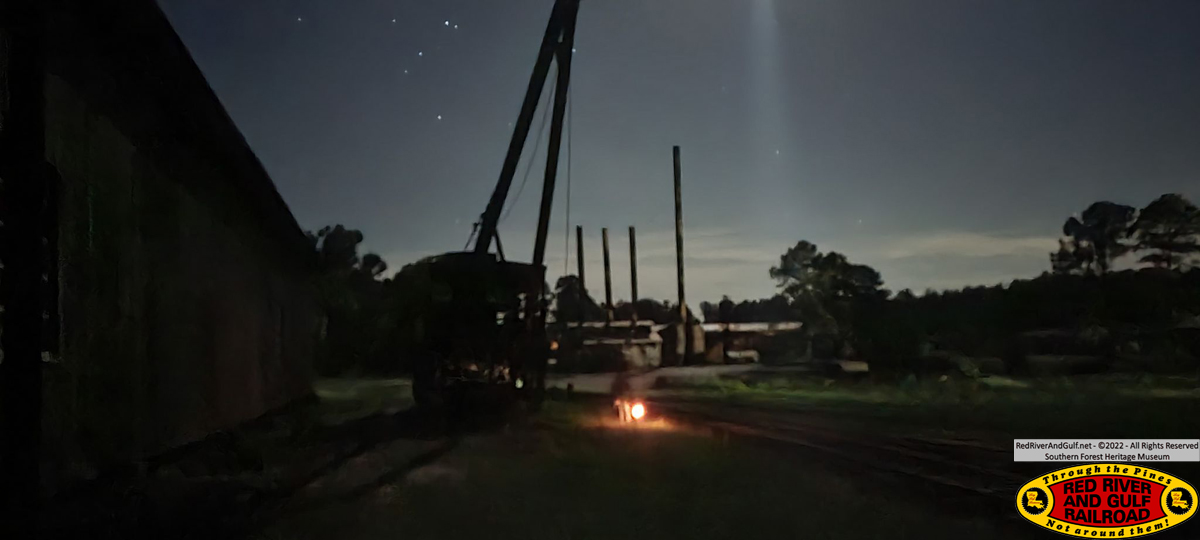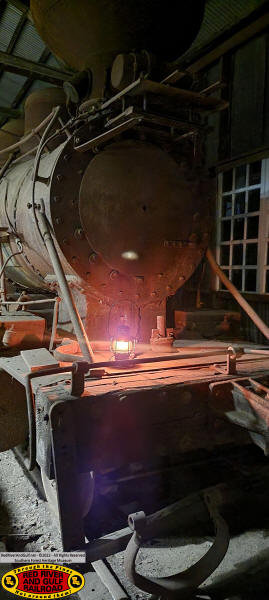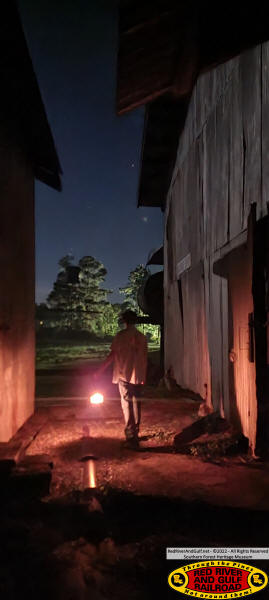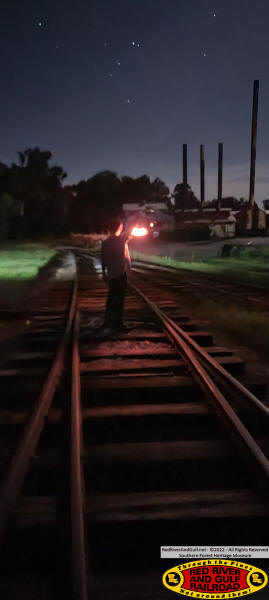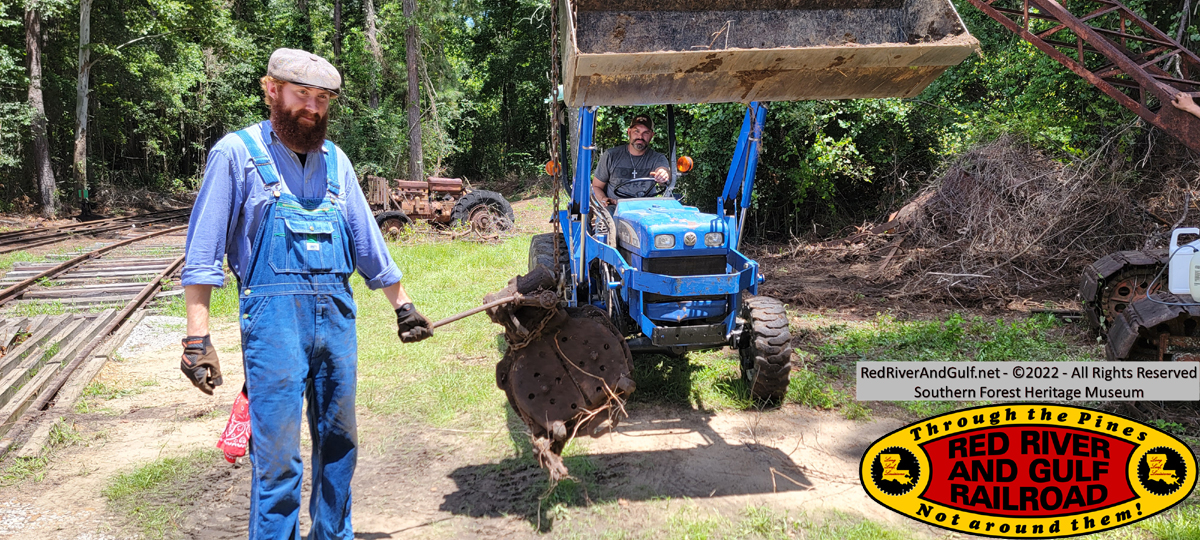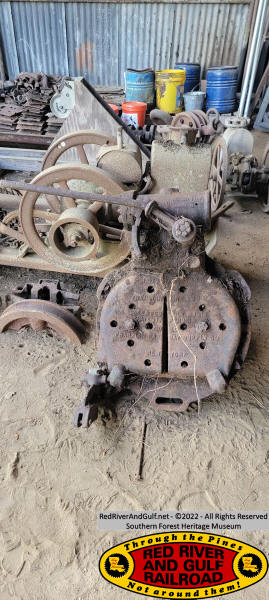|
Volunteer
Railroaders:
1. Jason R.
2. Noah R.
3. Joseph S.
4. Gavin S.
5. Joseph S. Jr.
6. David H. Sr
7. Everett Lueck
8. Kevin P.
9. Jacques D.
10. Makayla S.
11. Carson S.
12. Wimbley V.
13. Glen A.
14. Mike M.
15. Nick P.
Accomplishments
1. Water line repaired and water restored to Longleaf lodge
2. Bush hogged entrance roadway and portion of main field
3. Installed drainpipe and four new crossties on Main Line track near
the Engine House
4. M-22 locomotive now serviceable
5. New headlights, conduit, and wiring installed on M-22 locomotive
6. General maintenance on M-22 completed, including draining air tank of
moisture, greasing journal fittings and drive chain, and installing a
new seat
7. Crew training on M-22 startup, operation, and signals
8. Sorted and organized recovered spikes for re-use on track
9. Installed tie plates on Engine House lead track #2 to fix rail
movement issue
10. Moved the old Ford pickup truck out of the brush and trees for
eventual relocation to a better location at the museum
11. Sprayed herbicide and cut brush around the Planer Mill, Planer Mill
powerhouse, pumphouse, and boiler house
12. Sprayed herbicide on load-unload track, around Engine House,
McGifferts, car knocker shed, machine shop, and around Insley crane
13. Cleaned up metal debris pile near Insley crane in front of Engine
House
14. Recovered useable track parts from metal debris pile in front of
Engine House
15. Recovered locomotive butterfly firebox door from metal debris pile
near Insley
Saturday
The volunteers split into
many teams throughout Saturday, joined back up as tasks were completed,
and many improvements and repairs were completed. Earlier in the week, a
major water leak had caused the water to be shut off the lodge and the
Planer Mill. The museum staff had dug out the water line and begun
replacement of the T-joint. On Saturday morning, crew #1 of Carson,
Wimbley, Jacques, Makayla, Nick, Glen, Tucker, Joe, Gavin, and Mike,
along with museum staff Gerald, began the final repairs. This included
replacing a six-foot section of pipe and installing new sleeves and
unions. While the pipe cement was setting, this crew turned around and
headed up to the main line track near the Engine House.
The pluming crew then became the track repair crew, pulling out four old
rotten crossties at the spot where the Engine House pit drain empties
out into the main field. The crew salvaged an old 10-inch diameter PVC
drainpipe found on the sawmill pad to use in this spot. Jacques used his
blue Bronco to drag over four fresh crossties to the repair site. With
picks, shovels, lining bars, and tie tongs, the drainpipe was installed
to conduct water through the track and away from the ties. The four ties
were inserted and after lunch, the crew returned to level, gauge, and to
spike down the new ties.
Crew #2 of Everett, David, Jason, and Kevin, with assistance from other
volunteers throughout the day, labored over the M-22 Plymouth locomotive
all day. Their hard efforts, after several months of work, have brought
the locomotive to serviceable condition. They installed new front and
rear head lights, organized electrical wiring in the cab, installed a
conduit for the new headlight wires, built a new bench seat, drained the
air reservoir of moisture, greased the inner journal fittings,
lubricated the drive chain, and stenciled “M-22” on the cab doors. The
old light housings were completely rusted through and their wiring was
shorting out against the cab ceiling. Everett procured some new lights,
and with Jason making a trip to the hardware store in Glenmora for more
conduit, new working lights are now on the locomotive. The engine runs
well, the bell rings, the horn blows loud and clear, the wheels roll,
and we’re all very excited for the future of this locomotive!
Joseph and Gavin continue to be leaders preparing the museum grounds for
the upcoming Longleaf Fall Festival on October 21-22. Joseph used the
museum bush hog to mow along the museum entrance roadway and did some
more bush hog mowing in the main field.
Before lunch, Glen, Gerald, and Mike tested the repaired water line,
only to find that a portion of the T-joint was still leaking. After
replacing another portion and applying more pipe cement, and letting it
set longer, the water line was tested, and water restored after lunch.
Glen, Jason, and Tucker utilized an old plastic storage tote to
fabricate a valve cover box to go over the new valve installed after the
T-joint. The valve was installed to valve-off the Planer Mill portion of
the line, should another leak develop. While its not the picture-perfect
valve box, it is the most Longleaf valve box we’ve ever seen, even
better than a 5-gallon bucket.
After some investigation, it is theorized that when lightning struck a
nearby tree (which is still standing as a dead snag), the electrical
charge went down the water line, and the charge went to ground when it
encountered a nearby metal stake. Inspecting the old T-joint pipe, you
can see that the pipe failed from the inside of the pipe itself. It was
a truly fascinating piece of pipe! Fortunately, water was restored to
the lodge so the overnight volunteers could cleanup after a hard day’s
work. The broken pipe was retained for educational purposes, so you can
take a look at it the next time you’re at the museum.
In the heat of the afternoon, crew #2 continued their good work on the
Plymouth locomotive. With instruction from Everett, Carson, Wimbley,
Nick, and Gavin sorted and organized the recovered spikes to prep them
for reuse in future track projects and track maintenance. A tedious
task, but a necessary one!
Later the in afternoon, with work complete on the locomotive, volunteers
received additional training and instruction operating the locomotive,
including startup, proper horn signals, and good handling. Jacques gave
everyone good training and of course, a good time at the throttle.
Wimbley received a crash course in greasing the inner journal fittings
as well. Good work to all the folks who sought the restore the
locomotive to good order and well done on good equipment training. M-22
is now officially a serviceable locomotive. The first serviceable
railroad locomotive at Long Leaf in 53 rears. Work will continue on
internal and external clean up and painting at future sessions, but
beginning with the next session, M-22 will be used also in track
inspection and maintenance.
As the day was wrapping up, Jason, Joseph, and Tucker were planning for
future cleanup efforts in the area in front of the Engine House,
especially concerning the relocation of an old Minneapolis-Moline
tractor (M-M tractor) and an old Ford pickup truck. The M-M tractor is
too heavy for the museum tractor to move, so it will need to be
relocated once one of the forklifts are repaired. However, Joseph did
hatch a plan to successfully move the old Ford pickup truck. Parked in
the same location since approximately 1970, growing trees and rust had
really taken a toll on the truck. The engine, axles, wheels, and
electrical components had already been long removed from the truck. But
with some chain and the museum tractor, the truck was successfully
pulled out of the trees and brush and into the field area on what was
the railroad mill bypass corridor. Here, a forklift can now easily and
safely lift and move the truck to a better home at the museum. After
some other digging around brush and debris piles, the hood, driver-side
door, and license plate for the truck were located and reunited with the
old pickup. We do have some potential ideas for this unique pickup
truck….
Sunday
The following morning, the
volunteers split into two crews. Crew #1 of Everett and Makayla headed
up to the Engine House to continue maintenance on the Plymouth
locomotive. Crew #2 of Jacques, Kevin, Joseph, Gavin, and Tucker cut
brush, vegetation, and vines around the Planer Mill, powerhouse, pump
house, and boiler house. Gavin and Joseph had completed some excellent
trimming and cutting at prior sessions in this area, so armed with three
hand pump sprayers, we sprayed the cut-over areas with herbicide and
sprayed herbicide in future areas to cut. Crew #2 also attacked the
vines and brush that was starting to consume the boiler house and pump
house across the track from the Planer Mill. The boiler house was the
power source for the next-door water pump house that pumped water from
Barber Creek. This was also a good opportunity for the volunteers to
explore historic buildings and to inspect the status of these
structures.
Crew #2 then headed up the hill to spray herbicide on the load-unload
track, around the McGifferts, around the Engine House, Machine Shop,
parts warehouse, car knocker shed, and around the Insley crane. While
Gavin, Joseph, and Tucker worked with the museum tractor to continue
clearing out a metal debris pile near the Insley crane, Everett,
Jacques, and Makayla gave locomotive #400 a good oiling.
Now during the metal debris archaeology operation, Everett had mentioned
that a butterfly firebox door from a steam locomotive was last seen in
this area several years ago. Ask, and you shall receive! With more
digging and a keen eye by Joseph, the butterfly firebox door was pulled
from the brush and debris and is now proudly on display in the Engine
House. This fire door has to be from one of the 4 locomotives converted
to coal burning in 1920, and then converted to oil in 1923-24. They were
RR&G #102 & #103, and Crowell and Spencer Lumber #300 and #400. The door
was retained at Long Leaf just in case one of those locomotives needed
to be re-converted to oil fuel, and has been on the ground at Long Leaf
just short of 100 years waiting to be needed.
And on that exciting note, the volunteer crew wrapped up and cleaned up.
A safe, successful, and enjoyable weekend. Thank you to everyone who
came out.
-Tucker "Who Dat" Baker
RR&G Road Master
|
